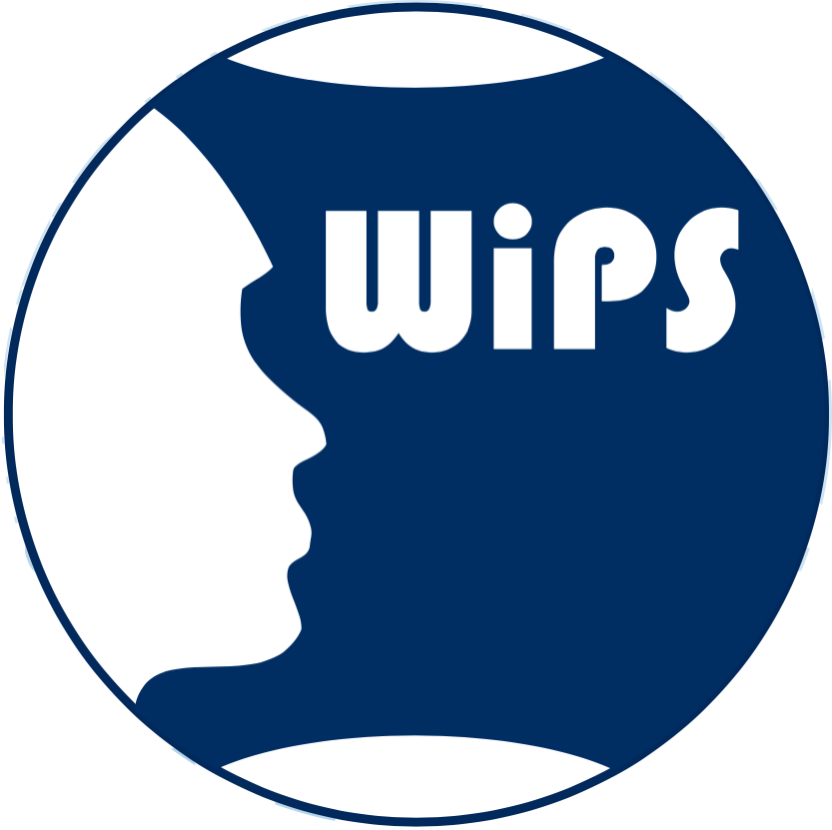Meet 100 Women in Polar Science and Support!
(1 - 51)

Tanya O’Neill, PhD
Discipline: Environmental soil science
Age: 41
Nationality: New Zealand
Organisation: Waikato University (New Zealand)
Regional focus: Antarctic
Social media: Website and Twitter
What’s the work that you do?
I am an environmental soil scientist. My research focuses around understanding and minimizing human impacts of the Antarctic terrestrial environment, and I have research projects in the fields of environmental monitoring of base rebuilds; microplastics and other anthropogenic contaminants; seabirds as vectors for marine to terrestrial transfer of pollutants; and I look after a network of soil climate stations in the Ross Sea region of Antarctica.
What keeps you going?
I am passionate about Antarctica and I am motivated for my work to make a difference and have a platform to share knowledge and inspire change. I feel very fortunate to have had 10 trips to Antarctica and more in sight, and feel with this privilege comes the obligation to communicate our science in a way that inspires others to be environmental stewards too.
What’s your message to the world?
Antarctica belongs to no-one and everyone. Let’s work together to protect it.
“By three methods we may learn wisdom: first, by reflection, which is the noblest; second, by imitation, which is the easiest; and third, by experience, which is the bitterest.”
– Confucius, 551BC
Manuela Bassoi, PhD
Discipline: Biological Oceanography (cetacean research)
Age: 46
Nationality: Brazil and Italy
Organisation: University of Rio Grande, FURG (Brazil)
Regional focus: Antarctic
Social media: ResearchGate
What’s the work that you do?
My passion has always been working with animals in the field, mainly in the Southern Ocean and Antarctic. There are always so many exciting encounters and moments! The experiences I have had in many projects motivate me to keep contributing to polar science and education.
What’s your message to the world?
Keep your passion and stay curious! The natural world is fantastic and we all depend on it. Care about every kind of environment, from the closest to the furthest ones (like the polar regions). We are all connected!
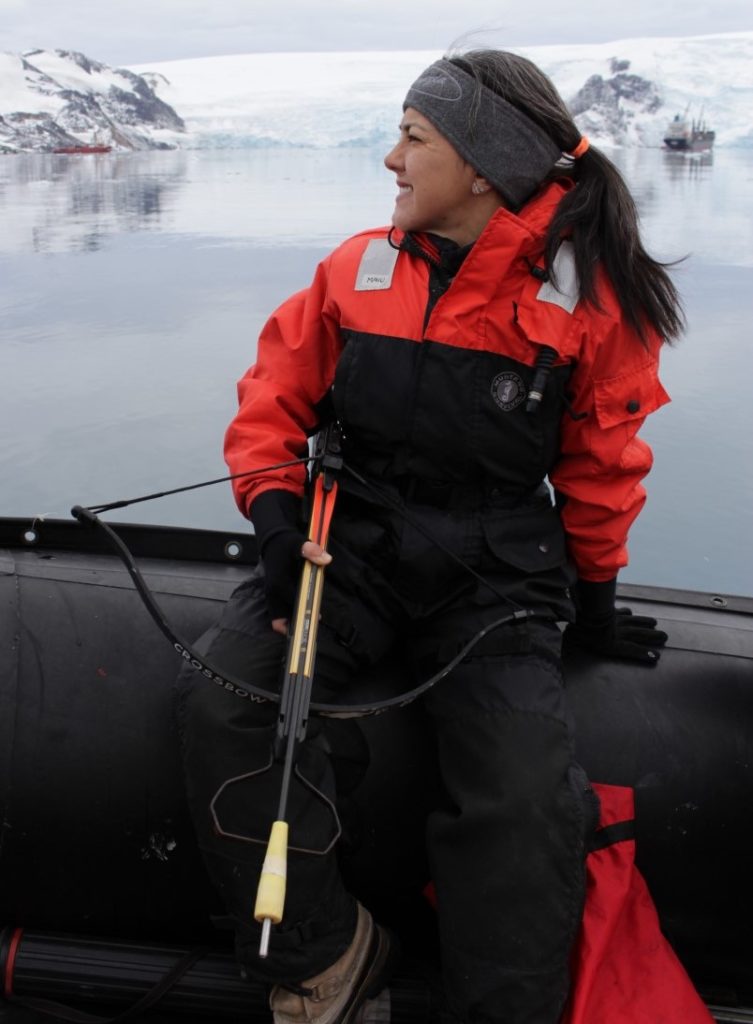
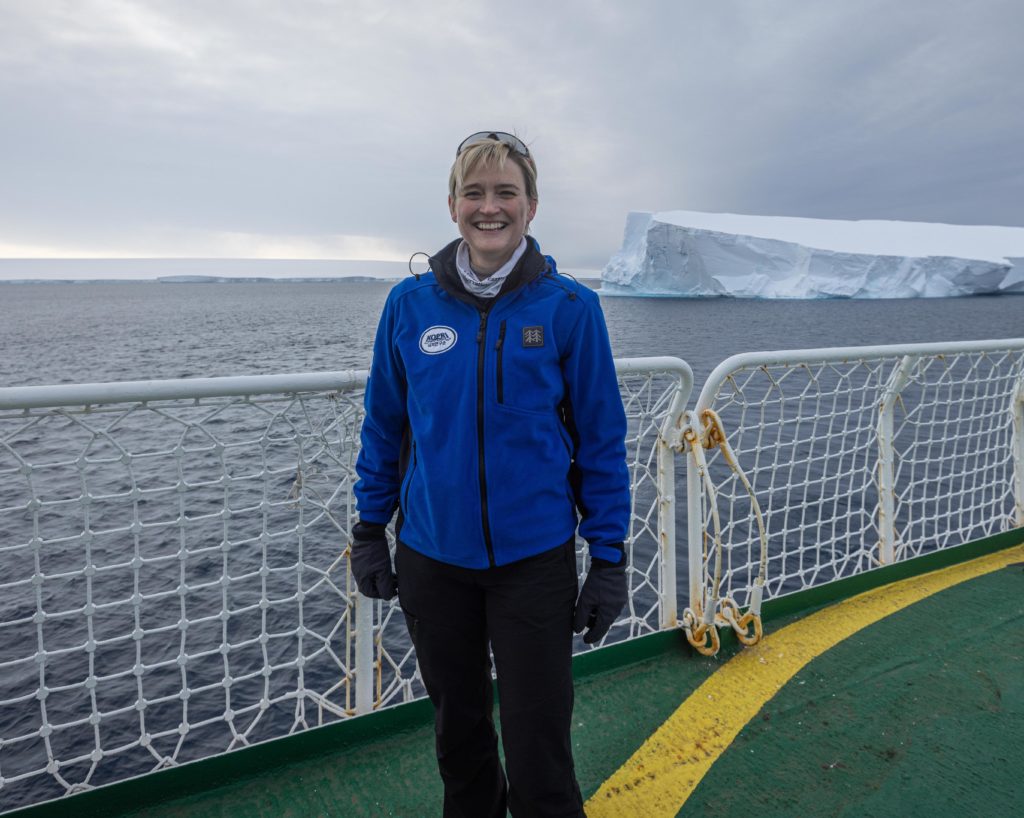
Clare Eayrs, PhD
Discipline: Sea ice variability; climate science; oceanography
Age: 46
Nationality: British (born and brought up in Zimbabwe)
Organisation: New York University Abu Dhabi (United Arab Emirates)
Regional focus: Antarctic
Social media: Twitter
What’s the work that you do?
I am a Research Scientist at the Center for Global Sea Level Change, NYU Abu Dhabi. I use satellite datasets and model outputs to examine sea ice variability at seasonal to interannual timescales and its relationship to the climate system. I’m also interested in processes at the grounding zone, the transition zone where a marine-based ice sheet goes from being grounded on the seafloor to abruptly terminating into, or going afloat on, the ocean. I’m currently using information from radar instruments to look at melt rates across the grounding zone at Thwaites Glacier.
What keeps you going?
I enjoy the intellectual challenge of my job and the fact that I am working on scientific issues that can impact communities across the globe. I especially like working with interesting people from all over the world due to the international and interdisciplinary nature of polar research. It doesn’t always make for convenient meeting times when you are trying to work across multiple time zones, but it is great to be able to discuss how your research fits into different contexts and contributes to wider issues.
What’s your message to the world?
Rosemary Vieira, PhD
Discipline: Glacial geology/Sedimentology/Paleoclimatology
Age: 56
Nationality: Brazil
Organisation: Fluminense Federal University (Brazil)
Regional focus: Antarctic
Social media: ResearchGate and Facebook
What’s the work that you do?
I am a geographer. Since 2003 I have been working with sediments and geomorphological processes in the South Shetland Islands, Antarctic Peninsula, and West Antarctica (Ellsworth Mountains). Based on distinct paleo proxies of geomorphic features, and terrestrial, lacustrine, and marine sediments, I reconstruct past climate conditions.
What keeps you going?
Antarctica is important on a global scale and there is so much that we do not understand about it and the polar regions. My curiosity and passion for understanding the unknown and how the climate and the landscapes changed over the past have always motivated me in my research career. And, I always have the privilege of working and learning with people who get excited by science and discoveries.
What’s your message to the world?
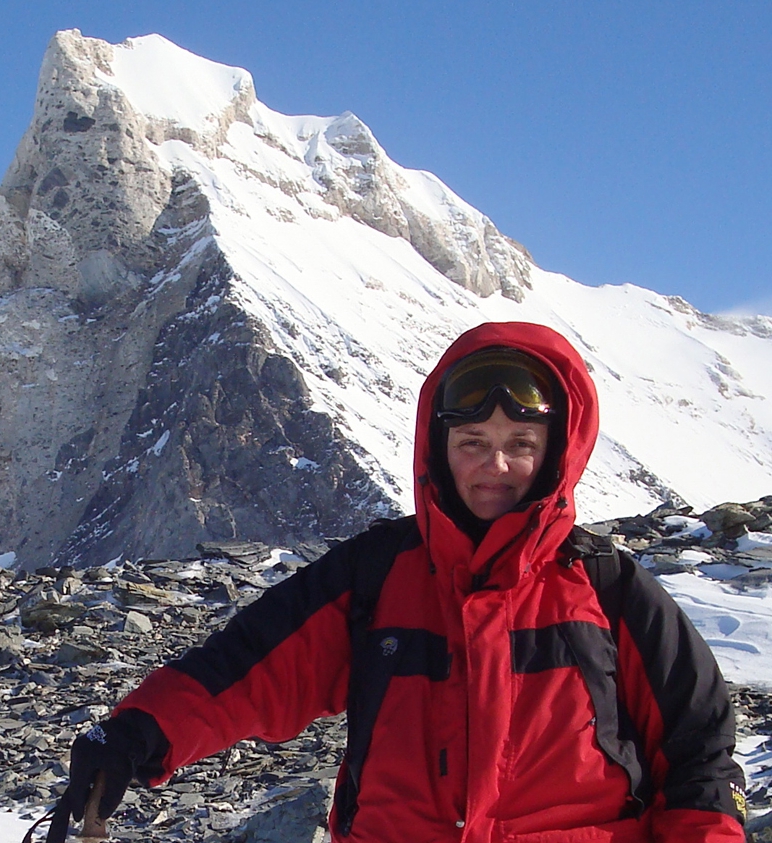
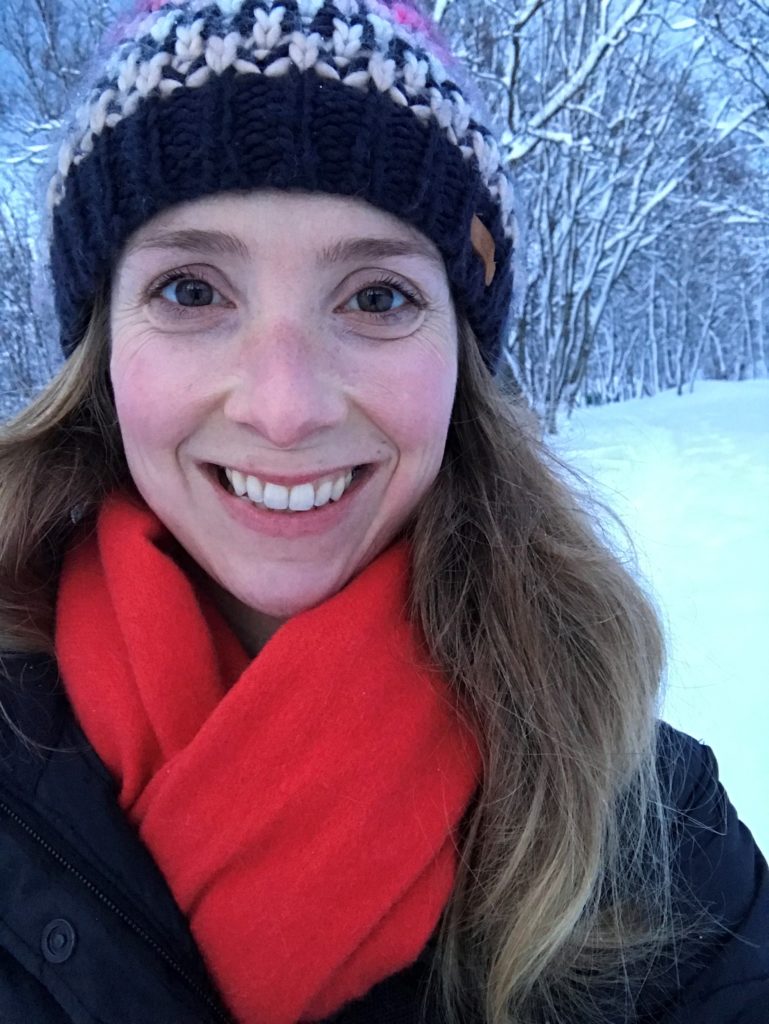
Kristina Bär, PhD
Discipline: Communications
Age: 35
Nationality: Sweden and Germany
Organisation: Arctic Council Secretariat (Norway)
Regional focus: Arctic
Social media: Instagram and Twitter
What’s the work that you do?
I work as the head of communications at the Arctic Council Secretariat in Tromsø, Norway, and thus, manage the communication and outreach work on behalf of the Arctic Council. On a daily basis, this means working with my fabulous three-women team on raising awareness about the Council’s work – especially the important project work conducted by the six Working Groups. We work closely with policy makers, scientists, researchers, and traditional knowledge holders to find the stories that will interest people in the Arctic and beyond and to showcase the impact of reports and projects on daily life and (inter)national policies.
What keeps you going?
What keeps me going – even during the current pause of the Council’s work – is the people we work with and the issues we jointly address. Communications is important to raise awareness of Arctic issues (also those that go beyond climate change, for example mental health or Indigenous languages). But it’s also essential to showcase that the Arctic is a home to people(s) and that they have tools and solutions to address changes in the Arctic – ideas and best practices worth sharing. The Council does a lot of important work on the ground that I think is often overlooked.
What’s your message to the world?
Florence Colleoni, PhD
Discipline: Paleoclimate and Paleo-glaciology
Age: 39
Nationality: French and Italian
Organisation: National Institute of Oceanography and Applied Geophysics, OGS (Italy)
Regional focus: Arctic and Antarctic
Social media: Facebook
What’s the work that you do?
I use numerical models to reconstruct paleoclimate and paleo-ice sheets dynamics. In particular, I focus on the interactions between the ice sheet-atmosphere-ocean-sediments. Keeping a multi-disciplinary approach is central to my research, so I touch on many different aspects of the Earth’s climate system.
What keeps you going?
I have always wanted to be a scientist, since I was a child. Therefore, my job doesn’t feel like work. I love to get up in the morning not knowing what the day will bring (most of the time…). You never know when a new question pops up in your mind! I really like to keep a multi-disciplinary approach to any questions. I could not do any modeling without my team, comprised of only marine geologists! It is definitely great to combine different points of view.
What’s your message to the world?
Reconstructing paleoclimates is a great privilege as we are a testimony of the Earth’s evolution. It is like a treasure hunt; you never know what you will find and if this will change our understanding of the Earth’s system. Each time I get to go to Antarctica, I feel very lucky to be able to investigate this amazing place. Everything is connected, you just need to find the “fil rouge” (red thread)!
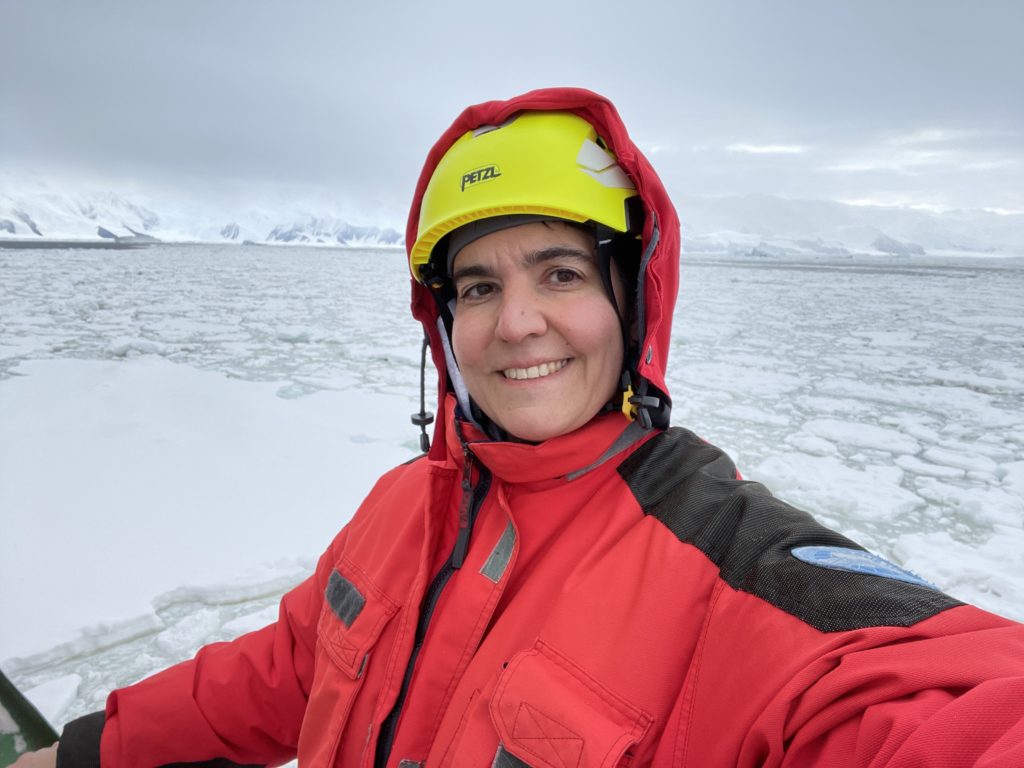
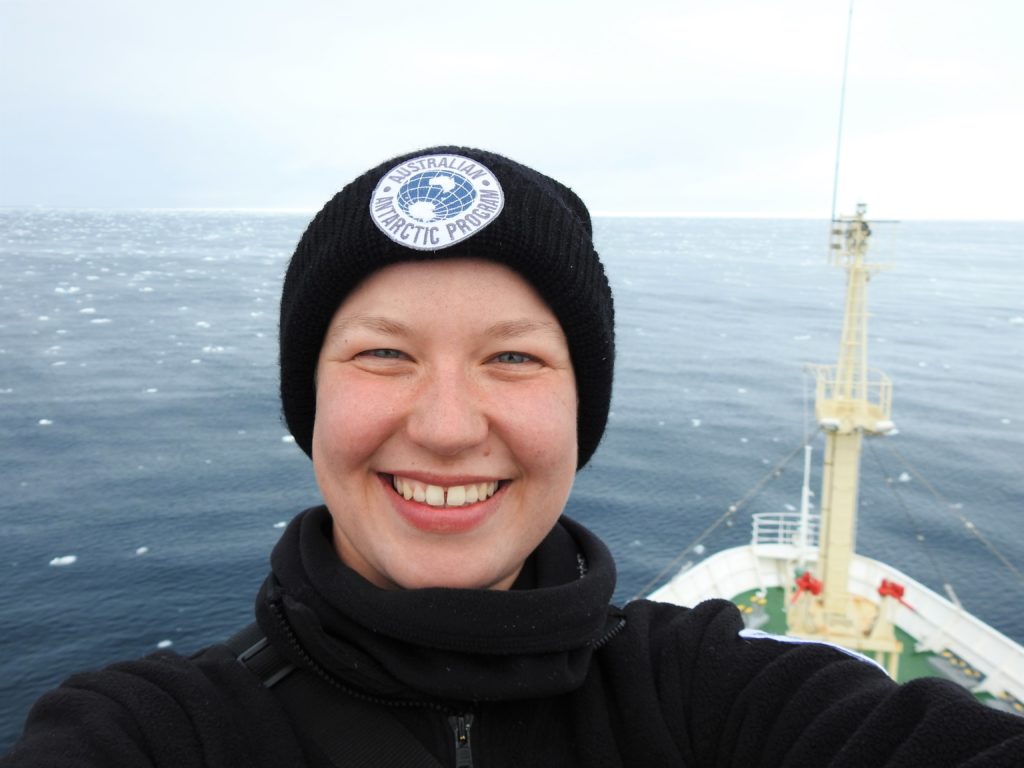
Svenja Halfter, PhD
Discipline: Marine Science
Age: 28
Nationality: Germany
Organisation: Institute for Marine and Antarctic Studies (Australia), soon moving to NIWA Wellington (New Zealand)
Regional focus: Antarctic
Social media: Twitter and Website
What’s the work that you do?
I work on how zooplankton ecology and diversity change the way carbon flows through the ocean and is stored in the deep sea. My current research focuses on the twilight zone in the Southern Ocean, which is a largely understudied zone of the ocean but very important as habitat for many animals and for downward carbon flux.
What keeps you going?
Great students and colleagues, sharing ideas and developing projects, planning and going on fieldwork to polar regions, connecting dots to solve puzzles and advance our knowledge of polar ecosystems, and learning something new every single day!
What’s your message to the world?
We are all smart here, distinguish yourself by being kind!
Ria Olivier
Discipline: Information management
Age: 62
Nationality: South Africa
Organisation: Antarctic Legacy of South Africa
Regional focus: Antarctic
Social media: LinkedIn
What’s the work that you do?
My role is to preserve the past for the future by maintaining archives and digital platforms: I am the project manager and principal investigator for the Antarctic Legacy of South Africa (ALSA). ALSA preserves visual material (including diaries) of previous overwintering members at the South African stations in Antarctica and on Marion and Gough Island. We also collect material from non-overwintering team members like construction workers, takeover personnel, scientists, and researchers. Using this material, I give lectures and public talks, train the overwintering teams and teach first year BSc students.
What keeps you going?
There’s so many perks to my job that keep me motivated. It is great to be part of the South Africa’s Antarctic environment as well as the bigger international Antarctic arena – I have made a lot of friends all over the world. I love being able to teach and support the future generations of South Africa: It is wonderful to see young minds absorb information and make it their own knowledge.
In making South African Antarctic information available to both the research community and the public, we create a nation of knowledge. I believe an informed nation can accomplish so much more, and I’m proud to be a part of it through my job.
What’s your message to the world?
I fiercely believe in making information open access so that it can become knowledge, which is crucial for policy makers and innovators. Research outcomes need to be added back into the world and its different communities.To create knowledge across all generations, we need to make information available. This way, we can learn from our highs and our lows and understand the world we are living in.
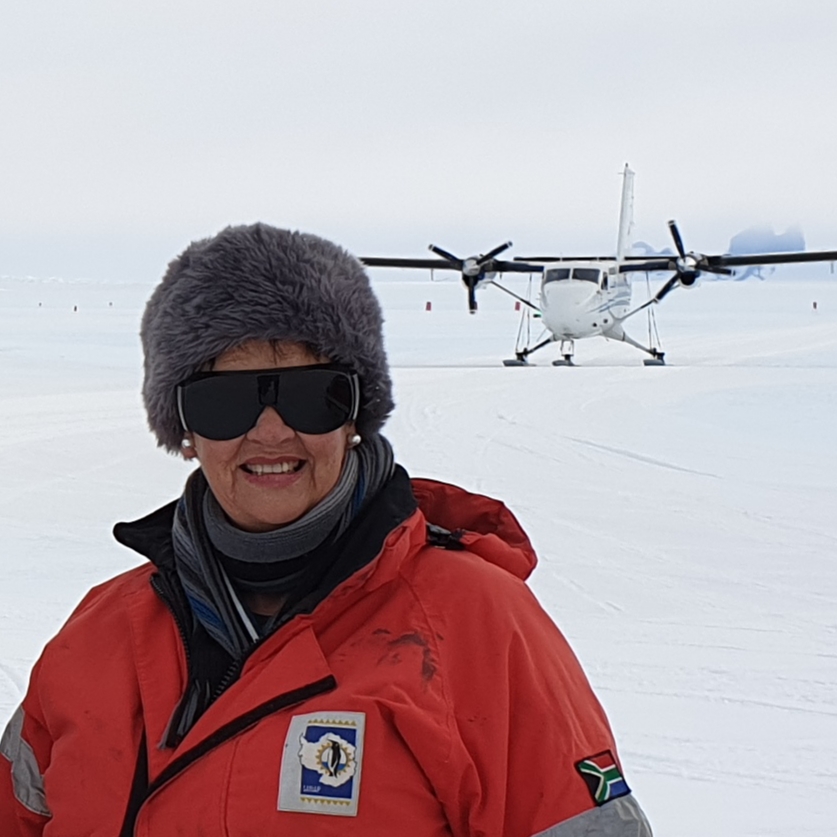
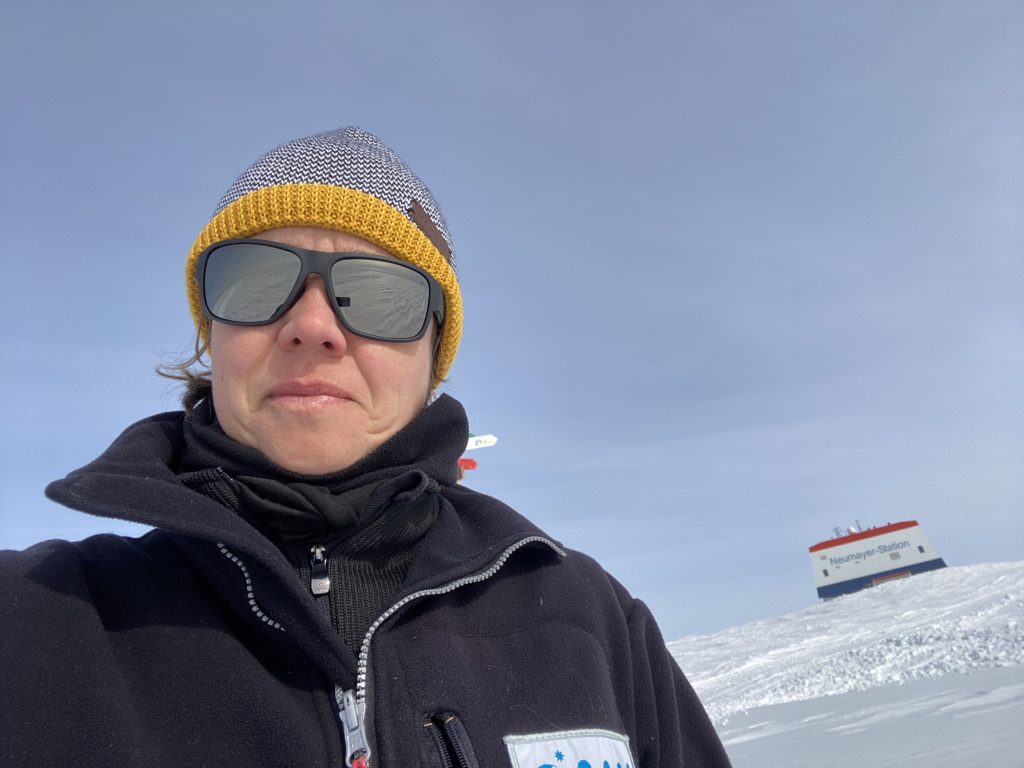
Christine Wesche, PhD
Discipline: Logistics (current position), remote sensing (research focus)
Age: 40
Nationality: German
Organisation: Alfred Wegener Institute Helmholtz Centre for Polar and Marine Research (Germany)
Regional focus: Antarctic
Social media: Twitter
What’s the work that you do?
After my scientific career in the field of satellite remote sensing, I was offered a job in Antarctic operations. As a logistical coordinator for Antarctic field campaigns, I plan the summer seasons including the supply of Neumayer Station III, the transport of expeditioners and their cargo to the respective stations or field camps. Additionally, I use my expertise in remote sensing to find safe traverse routes and to pursue my not-so-secret passion of chasing icebergs.
What keeps you going?
Working in Antarctica is an absolute privilege. If I have contributed to gaining scientific knowledge with my work, that is the best reward. Additionally, the international Antarctic community is incredibly fun and compensates for the many hours of office work.
What’s your message to the world?
Be kind to each other, because together we can achieve a lot.
Hong Ching Goh, PhD
Discipline: Natural resource governance and tourism management
Age: 47
Nationality: Malaysia
Organisation: University of Malaya (Malaysia)
Regional focus: Antarctic
Social media: ResearchGate and Academia
What’s the work that you do?
I am an associate professor in an Urban and Regional Planning Program. I’m also a member of the Malaysian National Antarctic Research Center, with its secretariat based in Universiti Malaya. In terms of research, my focus is on the interface of development and conservation domains and the cross-cutting challenges and implications that affect them. These include tourism planning, impact management and the multi-level governance of natural resources and protected areas. My approach to climate change-related research is interdisciplinary. I am also becoming more and more interested in intersectionality.
What keeps you going?
The interconnectedness and integration of all beings is central to my life principle and core to my research approach. This guides me to see everything that happens through a lens of curiosity and empathy.
What’s your message to the world?
It is crucial for both humankind and the polar scientific community that polar research and education be inclusive rather than exclusive. Empathy and passion for all creatures is key. With environmental ethics in mind and at heart, we can’t help but see how relevant the polar regions are to us.
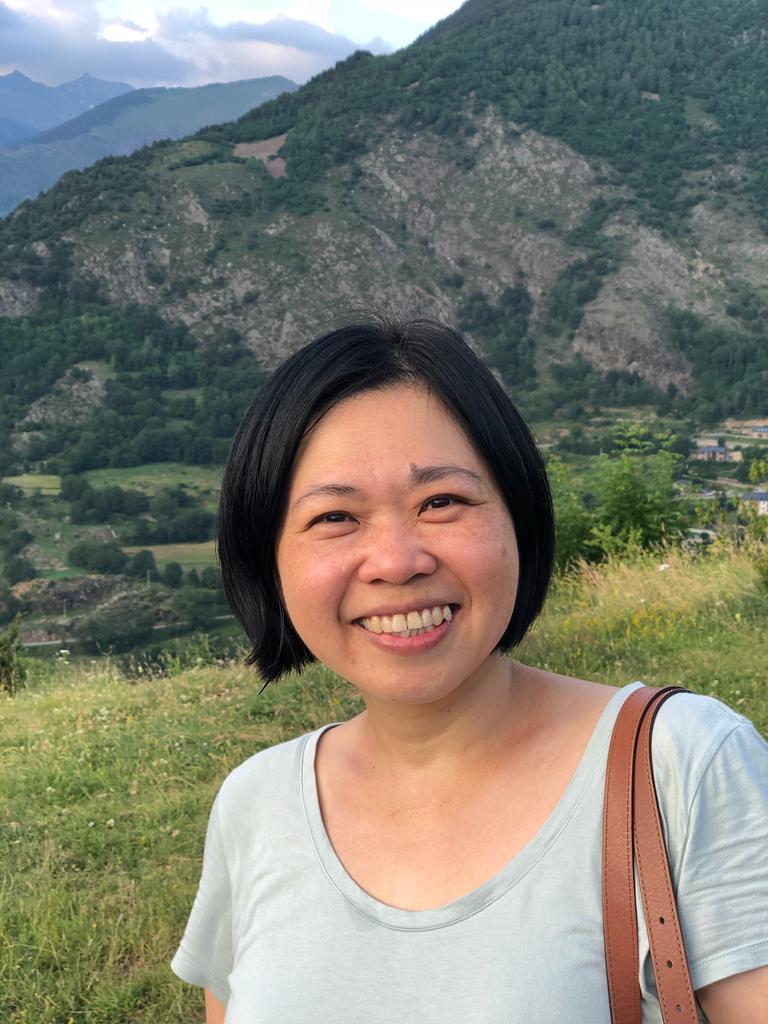

Sonia Ramos-García
Discipline: Antarctic Policy and Environment
Age: 50
Nationality: Spain
Organisation: Spanish Polar Committee (Spain)
Regional focus: Antarctic
What’s the work that you do?
I work for the Spanish Polar Committee, the body in charge to promote and ensure the coordination of the Spanish administration in the planning, authorization, coordination and monitoring of all of Spain’s activities in Antarctica. Our goal is to ensure compliance with Antarctic Treaty and Madrid Protocol commitments. Over the last 12 years, I have been part of the Spanish delegation attending the Antarctic Treaty Consultative Meetings (ATCM), and the Annual General Meeting of the Council of Managers of National Antarctic Programs (COMNAP). In 2019, I was elected Co-Chair of the ATCM working group on Science, Operations and Tourism.
What keeps you going?
It makes me very proud to be part of an international community that works to ensure that Antarctica is used for peaceful purposes only and where scientific research is the main objective for being in that unique and pristine place in the world. I really enjoy the international relationships that give me the opportunity to get to know other cultures. Furthermore, interacting with the scientific and technical community is an enriching experience. Thanks to my job, I learn something new every day and that keeps me motivated.
What’s your message to the world?
Be yourself, believe in you, be a good person and work hard to achieve your goals. Women are one half of humankind. Our point of view is important, necessary and valuable.
Shabnam Choudhary, PhD
Discipline: Marine Geology
Age: 31
Nationality: India
Organisation: National Center for Polar and Ocean Research, Goa (India)
Regional focus: Arctic and Antarctic
Social media: Facebook and Twitter
What’s the work that you do?
I work in the most extreme parts of the planet – the lifeline of our globe. My work focuses on the interaction of climate and aquatic systems in the Arctic and Antarctic regions. I study modern sedimentation processes and anthropogenic pollutants at different spatial and temporal scales. I am trying to comprehend (1) the source of sediments, (2) the factors controlling sedimentation processes in aquatic systems and (3) the impact of anthropogenic pollutants in these environments. Understanding modern sedimentation processes helps in the quantification of the geochemical cycling of the Earth system.
What keeps you going?
My passion for polar research and my curiosity to know about different global environmental issues. The thing that I love most in my job is to explore new ideas and perspectives – I hope to use my research findings for creating awareness of why polar regions are important and how climate change affects these vulnerable regions. Evidence of a changing climate is quite visible in the Arctic: it’s so important to understand these vulnerable regions.
What’s your message to the world?
Climate change is complex, and the more you study, the more complicated the situation becomes. When we integrate the data from all constituents, it can change our perception of what’s actually going on. So, beauty is not always how you perceive things but actually how things are in a global context. Have a deep vision, be cognitive, curious and open-minded.
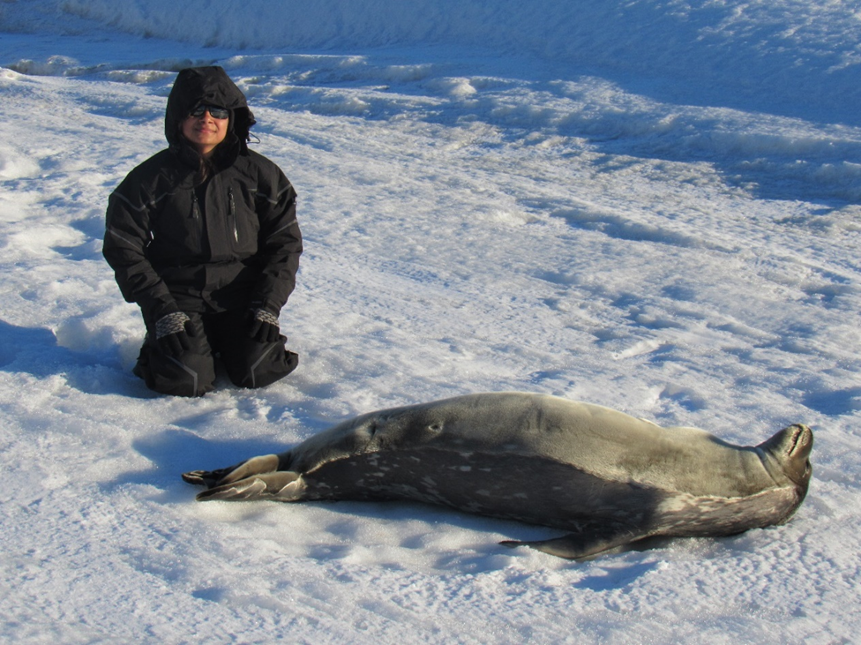
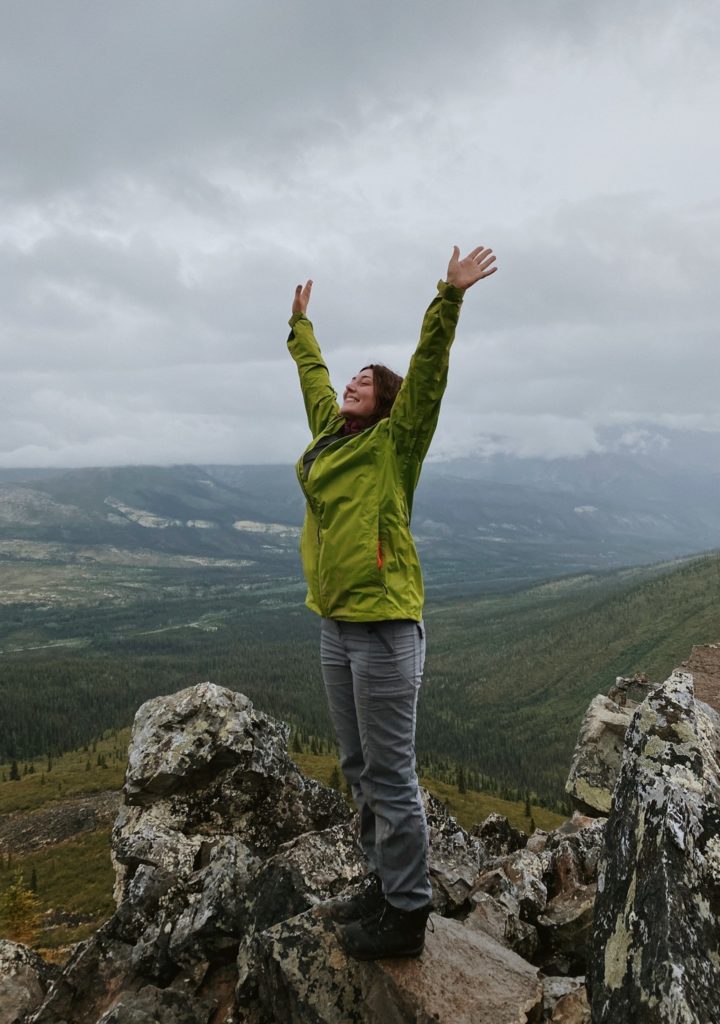
Michelle Landry, BSc
Discipline: Environmental Geochemistry
Age: 22
Nationality: Canada
Organisation: University of Ottawa (Canada)
Regional focus: Arctic
Social media: Instagram and LinkedIn
What’s the work that you do?
For my honours thesis, I collected and analyzed permafrost soil cores from Tombstone Territorial Park, Yukon, Canada. My work concerns determining the source and age of greenhouse gas emissions, specifically CO2, coming from thawing permafrost in the sub-arctic and northern climates. Working collaboratively with other researchers, I hope to share my findings with the park community to help in addressing safety concerns such as the release of ancient diseases and infrastructure/highway development and maintenance.
What keeps you going?
Working as a national outreach instructor with Actua Canada gave me the opportunity to facilitate workshops which blend Traditional Ecological Knowledge with Western science, in over 15 rural Indigenous communities in Canada. Now, I have been fortunate enough to pursue a career in permafrost science, which blends all my favourite disciplines: geology, chemistry, atmospheric sciences as well as fieldwork, travelling and meeting people from all walks of life.
What’s your message to the world?
As scientists, we can track the changes in our environments by collecting data faithfully year after year, blending a wide variety of knowledge and specialties. Attending a conference by Sheila Watt-Cloutier on her book “The Right to be Cold” inspired me to do what I can to contribute to bringing scientific findings back to the north. I’ve noticed there is a gap between Indigenous knowledge keepers and Western scientists and I believe there is a dire need to close it, should we desire to respect the future of our planet.
Irene R. Schloss, PhD
Discipline: Biological Oceanography
Nationality: Argentina
Organisation: Instituto Antártico Argentino and Centro Austral de Investigaciones Científicas (CADIC-CONICET); Universidad Nacional de Tierra del Fuego, Ushuaia (Argentina)
Regional focus: Antarctic
Social media: ResearchGate
What’s the work that you do?
My research focuses on plankton in polar and subpolar marine ecosystems. I’m trying to understand their dynamics and response to global change. Fieldwork, experimental approaches and modelling are all tools I use in my work. As a researcher, I work together with students I supervise as well as with early career scientists and many colleagues, trying to build empathic and cooperative teamwork.
What keeps you going?
There is a sense of urgency in my job as a marine polar scientist working on the effects of climate change. From the time between my first and my most recent visit to Antarctica, I could see glaciers retreating in front of my eyes. Witnessing this, while being able to study, teach and tell the world about these systems, and contribute to understand them is a major drive in my life. It is a diverse job, from the planning and execution of field cruises, to data analysis and outreach and publication of the results; I love every aspect of it.
What’s your message to the world?
I believe all life forms are related, and related to this planet. This includes us, the human beings. What happens to any environment, to any living organism, matters, so let’s take care, be compassionate, understand, and specially protect the most fragile systems, such as polar environments and their organisms.
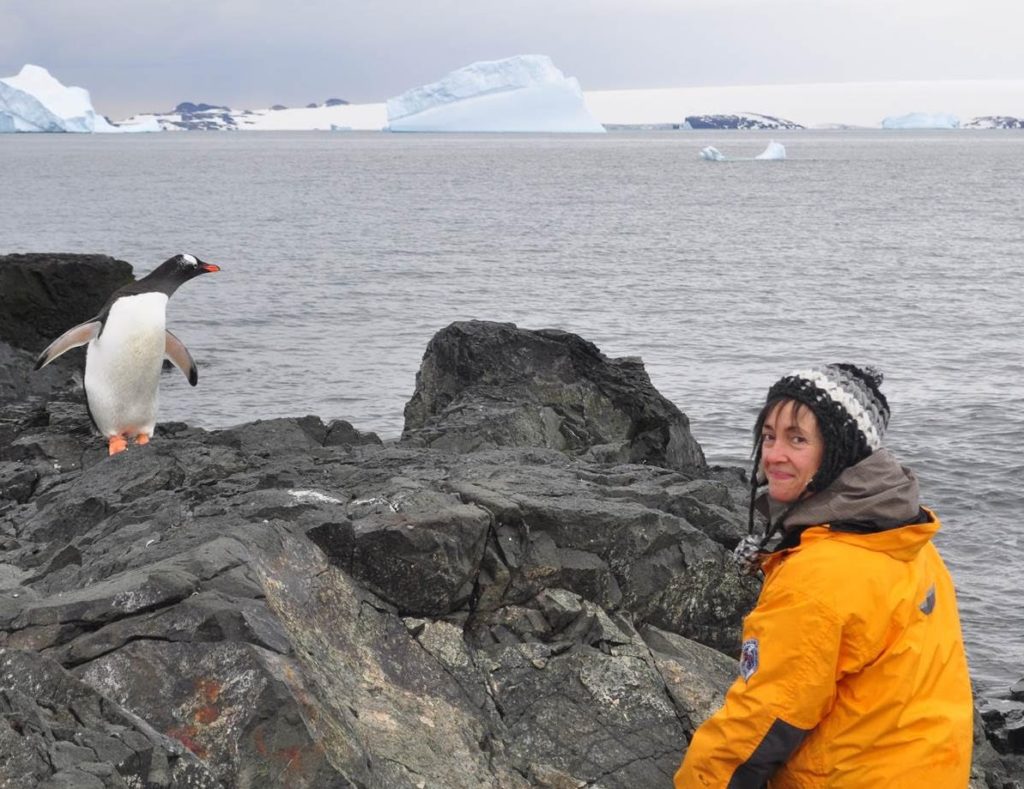
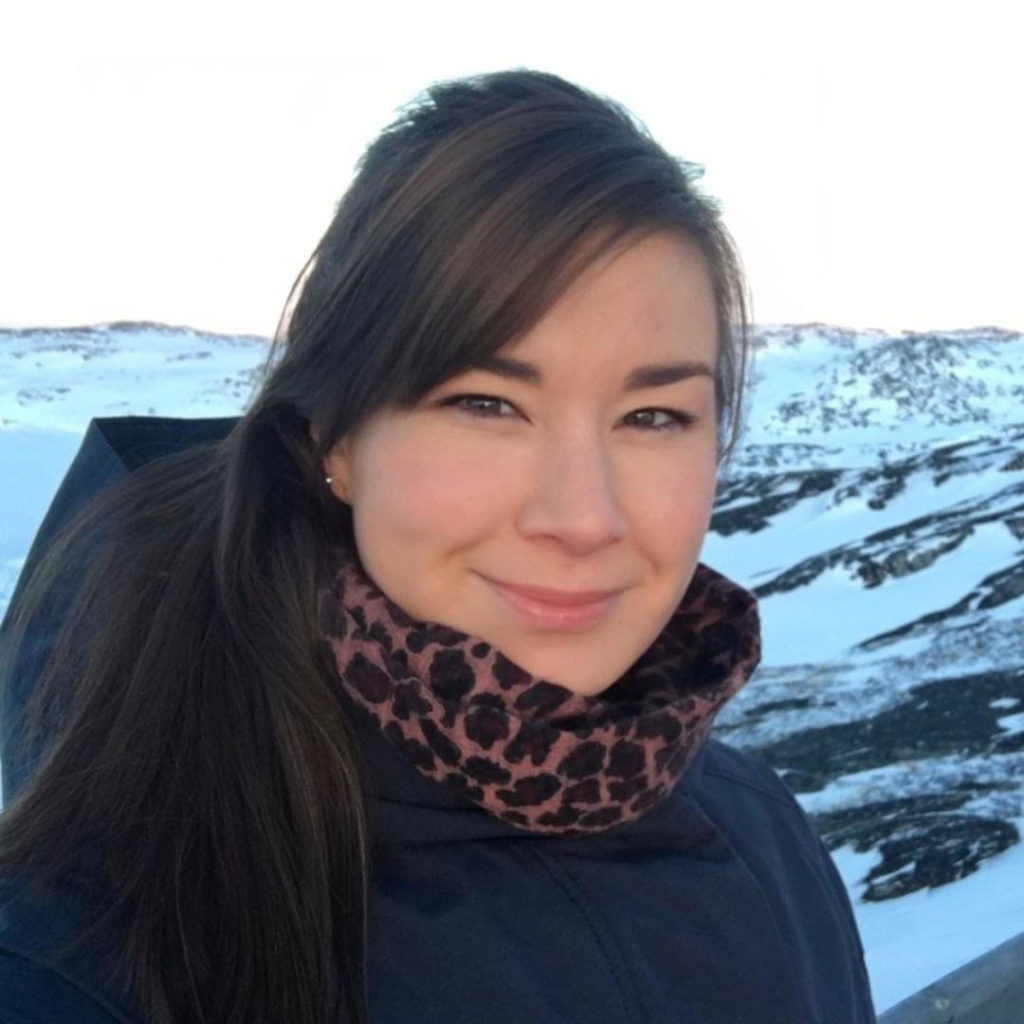
Anna-Sofie Skjervedal, PhD
Discipline: Public participation (research focus), management (current position)
Age: 36
Nationality: Greenland
Organisation: International Arctic Hub (Arctic Hub) in Nuuk (Greenland)
Regional focus: Arctic
Social media: LinkedIn and Twitter
What’s the work that you do?
As Head of Secretariat at the Arctic Hub I am in charge of the daily management and strategic development of the newly established secretariat locally anchoraged at a beautiful spot in the heart of the research community in one of the world’s smallest capitals: Nuuk in Greenland. At the Arctic Hub, we work to build bridges between science and community. We make sure the traffic of knowledge goes both ways, so that knowledge from science can benefit society at large, from decision-makers to citizens, and so that researchers become aware of knowledge gaps experienced by e.g., business and industry, or government officials. We want to take knowledge out of the deal drawer, and make it more accessible and put into active use. We bring people together across fields of expertise and national boarders, and we ‘translate’ and disseminate knowledge from research through video production and articles.
What keeps you going?
The Arctic Hub is a brand new initiative. It has never been done before in Greenland. The drawing board is open and it is exciting to be able to build something from scratch. Also, I get to link my knowledge and experience from research in practice, which is so satisfying. It simply makes good sense. Building and developing the Arctic Hub from the bottom requires a team effort. I enjoy working with my small but talented and truly engaged team. That means everything, and makes it so much more fun. Furthermore, the work that we do is meaningful and fills a gap in this world. This keeps me going.
What’s your message to the world?
Know your core values, be true to them, and live by them. They may change over time, but this is natural as you grow from your experiences and learn something new. Never stop being curious – about yourself, the people you meet, and the world around you.
Charlotte Havermans, PhD
Discipline: Polar biology
Age: 37
Nationality: Belgium
Organisation: Alfred Wegener Institute Helmholtz Centre for Polar and Marine Research (Germany)
Regional focus: Arctic and Antarctic
Social media: Instagram and ResearchGate
What’s the work that you do?
What keeps you going?
I am driven by an endless curiosity and passion about marine invertebrates, their diversity, their interactions, their mysterious beauty. What I most like in research is how trying to answer one question brings along a new one, and that step by step your view on an ecosystem grows bigger. You learn something new every day. It is also wonderful to have the freedom to follow our own curiosity by developing new projects and collaborations.
What’s your message to the world?
The world of research and academia is not always an inclusive, friendly, honest one. This is because we are still evaluated on a limited set of criteria that are outdated or have their limitations, such as impact factors, or authorship positions. I believe it is crucial to be transparent, share ideas, and build bridges and networks. We need to support each other instead of compete, and the academic system should also try better to facilitate and reward this. Our world is at stake and needs science to solve the most urgent questions. Let’s join forces and brains!
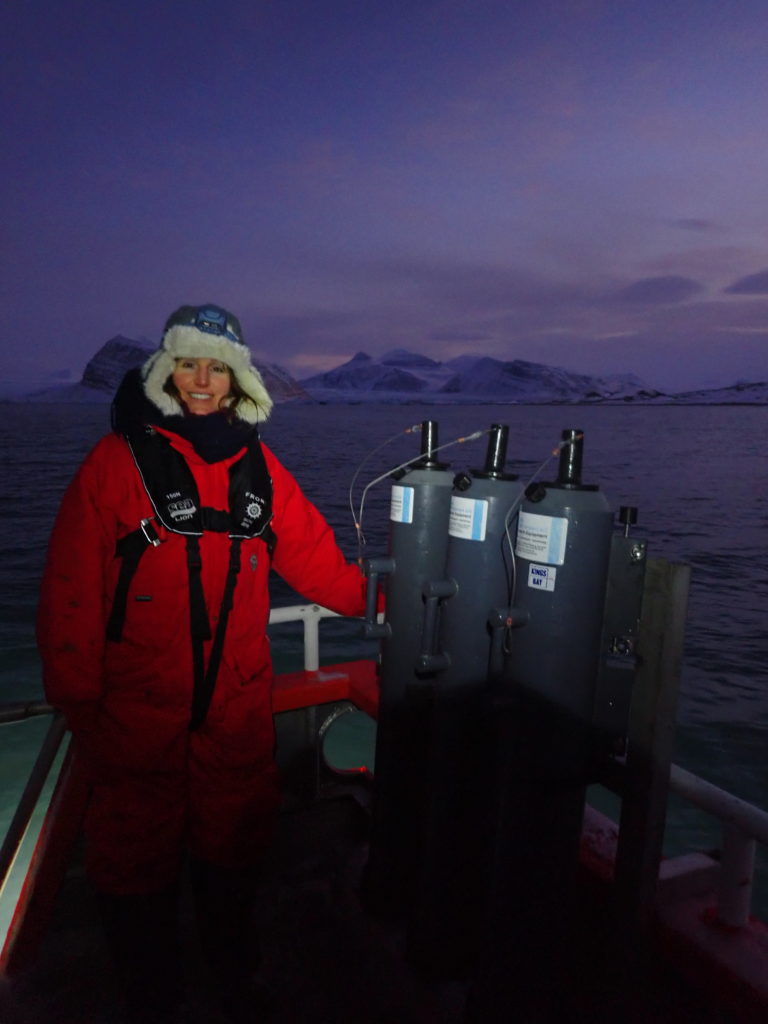
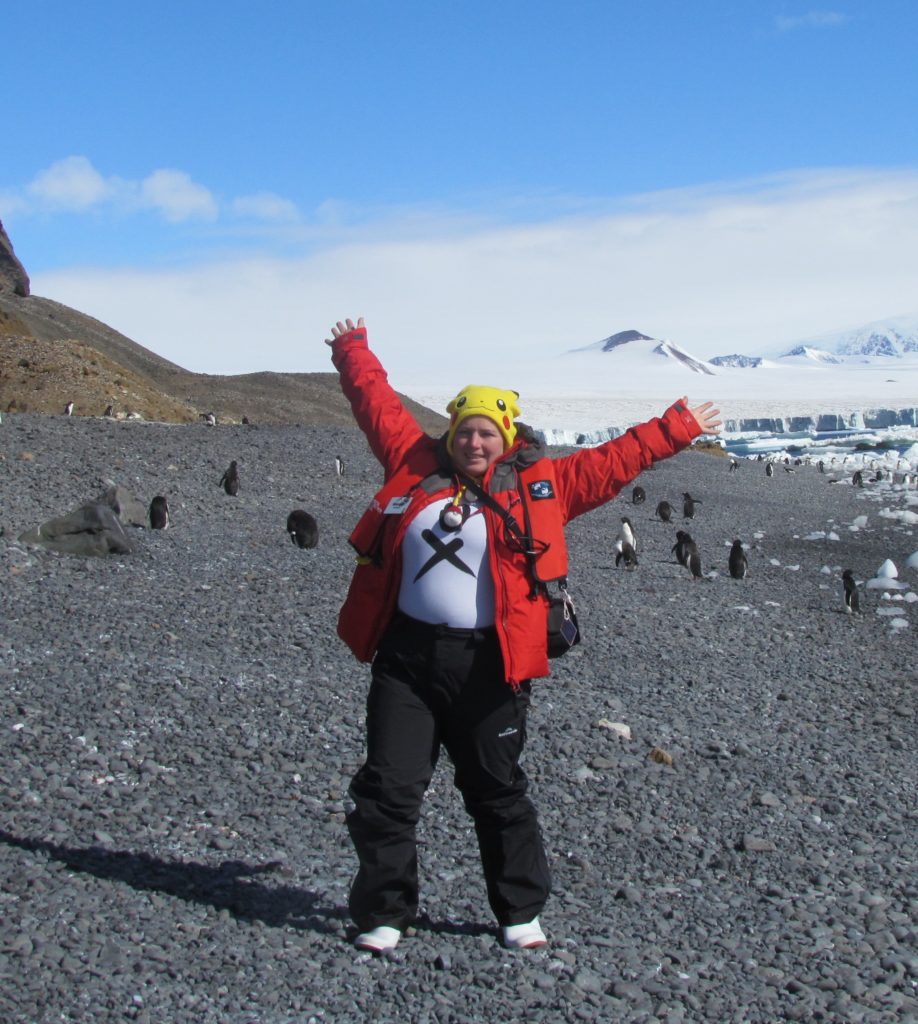
Nicole Hellessey, PhD
Discipline: Krill biologist
Age: 33
Nationality: Australian
Organisation: Georgia Institute of Technology (USA)
Regional focus: Antarctic
Social media: Twitter
What’s the work that you do?
I am a post doctoral researcher. I’m currently studying Antarctic krill swimming behaviour in relation to chemical, physical and photic stimuli to see what causes krill swarms to form and disperse in the environment. This work will be useful to predict if and how krill will swarm under different environmental situations. I’m also a committee member of Pride in Polar Research (@PridePolar), and I’m on the SCAR EDI Leadership Steering Committee.
What keeps you going?
I love communicating my science to a broad range of audiences from young children to the young at heart. Being able to show that science is accessible to everyone is what helps me stay motivated for when there’s long days of data analysis.
What’s your message to the world?
Where there’s a krill, there’s a way. A motto and a mantra!
Nicole Kanayurak, MMA
Discipline: Wildlife Management, Arctic Science & Policy, Interdisciplinary
Age: 31
Nationality: US-American, Alaska Native
Organisation: North Slope Borough (USA)
Regional focus: Arctic
Social media: Facebook and Instagram
What’s the work that you do?
As the Deputy Director of wildlife management at the North Slope Borough, a municipal government, I am engaged in Arctic fish and wildlife research and governance. I engage in Indigenous co-management of natural resources in the Arctic. I enjoy serving as an Inuit representative to an Arctic Council working group for the marine environment and serve on advisory committees as it relates to the Arctic environment such as the North Pacific Research Board.
What keeps you going?
When you find something that you’re passionate about, it’s easy to keep going. I do the work that I do to contribute and serve my community here on the North Slope of Alaska and across the circumpolar north. Working to improve our rights and our engagement when it comes down to the management of the food that feeds our minds, bodies, and souls as Indigenous Peoples, it becomes a serious job and very meaningful.
What’s your message to the world?
In a globalized society it is important to have compassion and be open to try and understand different cultures of different places. While there is an increase in access to places like the Arctic, it is important to realize the impact to the place that comes with this access.

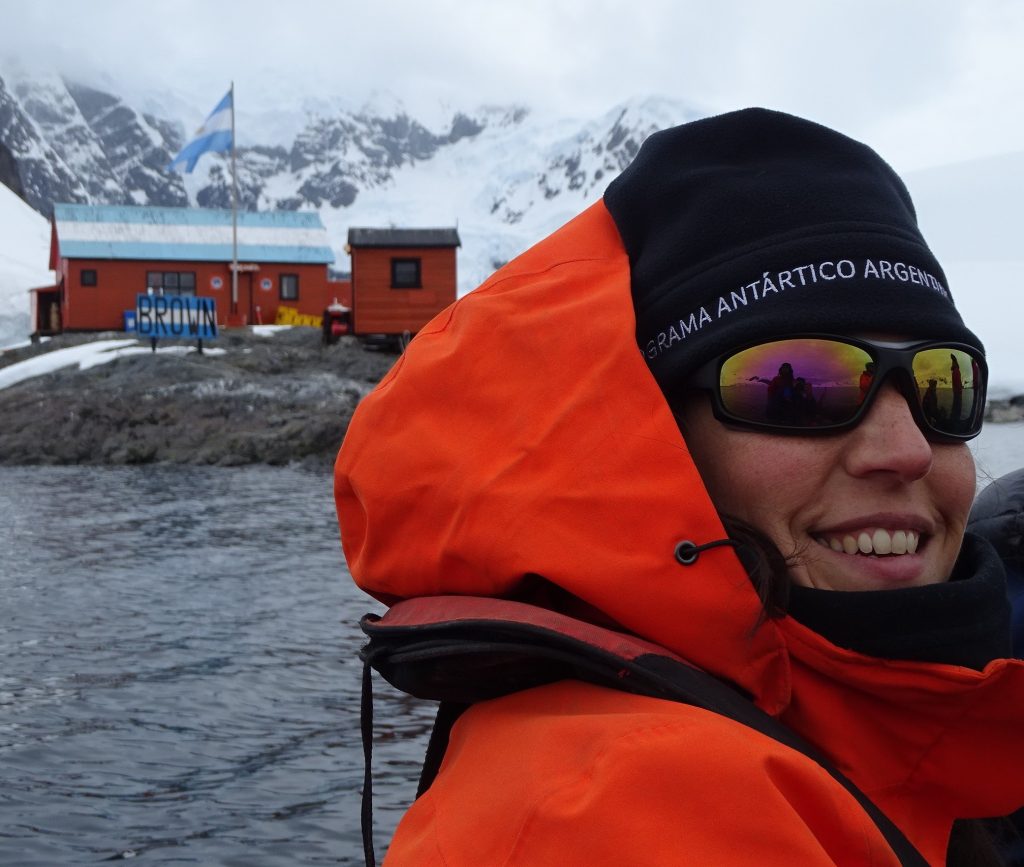
Andrea Capurro, MSc
Discipline: Science policy, conservation and environmental management
Nationality: Argentina
Organisation: (former) Dirección Nacional del Antártico – Ministry of Foreign Affairs of Argentina
Regional focus: Antarctic
Social media: LinkedIn
What’s the work that you do?
I have been working in the science policy interface, helping the international body tasked with governing the Antarctic plan for trade-offs between conserving the ecological community and meeting the needs of people. This planning is especially critical given the current and future outcomes of climate change. In addition to my work in environmental management, I specifically advise on the design and future implementation of a Marine Protected Area in the West Antarctic Peninsula, an area of critical ecological and economic value that is already feeling the impacts of global warming.
What keeps you going?
The uniqueness of Antarctica. And I am not only referring to the outstanding wilderness but also to its one-of-a-kind governance. An entire continent for peace and science where cooperation and consensus rule. I still find it fascinating to dive into the intricate labyrinth of policy making, getting to know the players and how they interact with each other, and what role you can actually play in the game (spoiler, it usually goes beyond scientific advice). Many times it is extremely frustrating, but as a Latina biologist, I didn’t expect I’d be able to leave a footprint while enjoying the policy side so much!
What’s your message to the world?
Be empathetic to one another and to the world. Listen, learn and be open to different mindsets, especially those that kick you out of your comfort zone. Don’t take it personally. Enjoy the game!
Katherine Richardson, PhD
Discipline: Earth System Science with a starting point in biological oceanography
Age: 67
Nationality: US-American and Danish
Organisation: Globe Institute, University of Copenhagen (Denmark); Sustainability Science Centre (Denmark); Queen Margrethe’s and Vigdís Finnbogadóttir’s Interdisciplinary Research Centre on Ocean, Climate, and Society (Denmark)
Regional focus: Arctic and sub-Arctic
Social media: ResearchGate and Twitter
In collaboration with ECOTIP Women in Science
What’s the work that you do?
I study interactions between climate and ocean ecosystems and biodiversity with a focus on plankton and what these interactions mean for carbon stocks and flows in the Earth System.
What keeps you going?
Curiosity and good colleagues! Not to mention the satisfaction of “solving a puzzle”, i.e. answering a research question!
What’s your message to the world?
It’s not enough to do science and produce research results! We scientists also have to be able to place our research – like a piece of a puzzle – in the context of the Earth System and to demonstrate how our research can contribute to societal transformation.
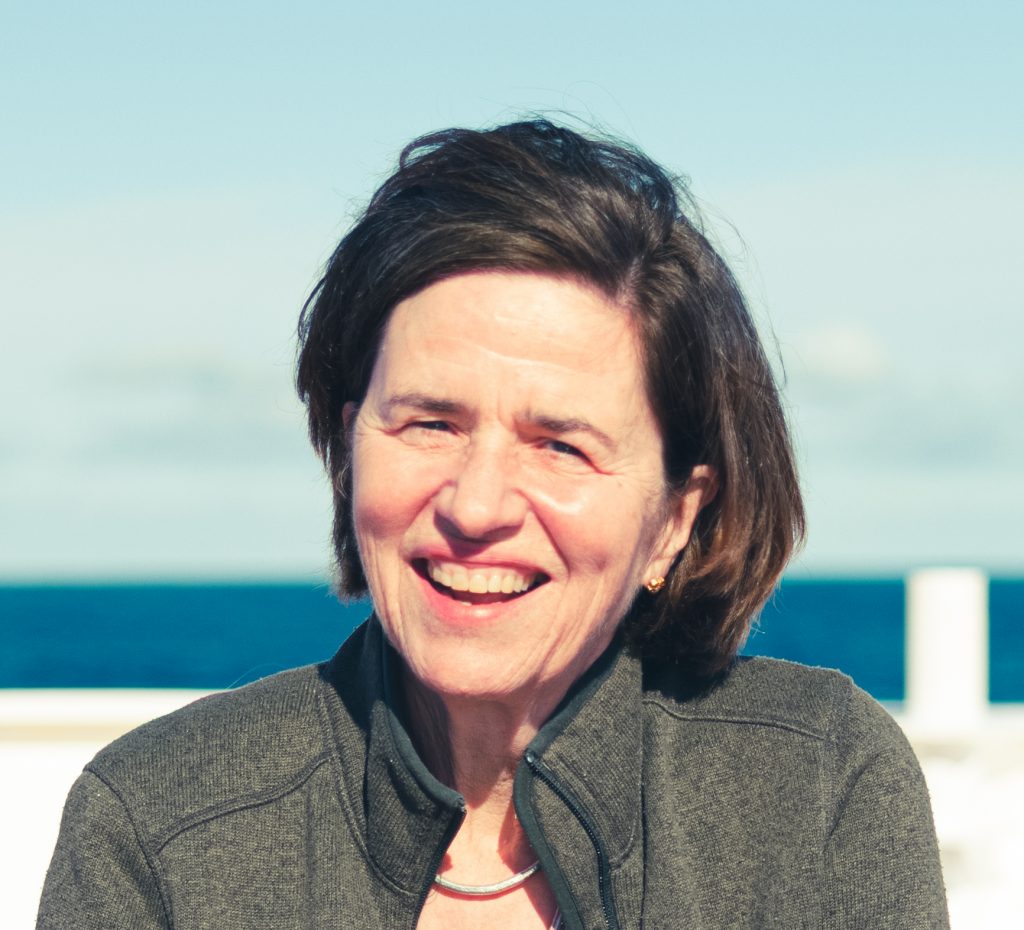
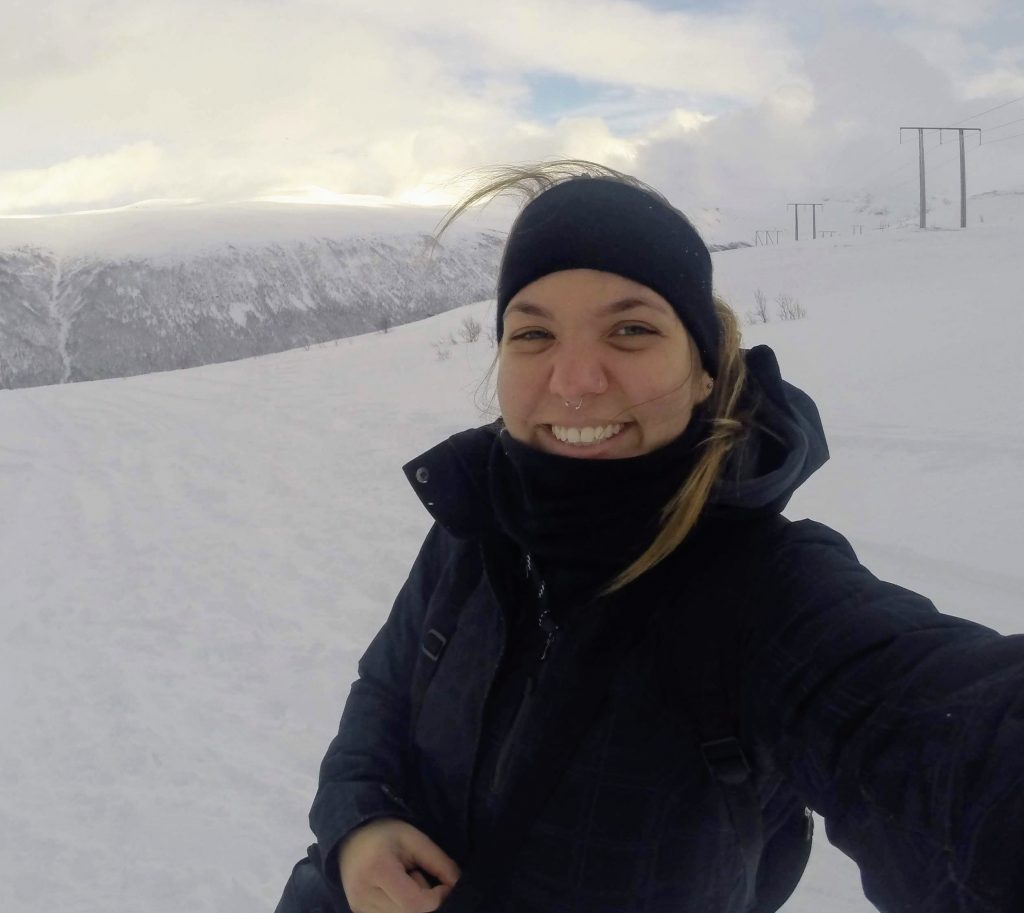
Yousra Makanse, MSc
Discipline: Tourism
Age: 31
Nationality: Brazilian
Organisation: Wageningen University (The Netherlands)
Regional focus: Antarctic
Social media: Twitter and LinkedIn
What’s the work that you do?
I am a Ph.D. candidate at Wageningen University, working on an interdisciplinary research project named ProAct (Proactive Management of Antarctic Tourism). Tourism in Antarctica has experienced exponential growth in recent years, resulting in an increased number of visitors alongside an increase in the variety of tourism activities offered on the continent. My research aims at exploring tourism diversification on the continent, its socio-economic drivers and desirability, as well as the possibility to find legal tools to regulate undesirable aspects.
What keeps you going?
Being surrounded by people who believe in and are fighting for the same causes that I am. And hope that we can change our ways and start making more meaningful relationships with our Earth.
What’s your message to the world?
We need to understand that the changes in the Poles are a global responsibility, and we all should unite efforts to prevent further impacts. And if you are a woman in Polar Sciences, remember about all the young women who will look up to you and who you will have the chance to inspire and empower.
Cilla Wehi, PhD
Discipline: Conservation Biology
Nationality: New Zealand
Organisation: University of Otago (New Zealand); Te Pūnaha Matatini Centre of Research Excellence
Regional focus: Antarctic
Social media: Twitter and Website
What’s the work that you do?
I work in two main areas. First, I work on trophic structure and especially foraging behaviour, including isotope and nutrient analyses of diet in animals past and present, and how these may be influenced by morphology, behaviour and evolution. Second, I work at the interface where cultural and ecological knowledge meet, often in partnership with communities. I examine how knowledge at this rich interface can and does transform socioecological relationships, including environmental management of the Antarctic.
What keeps you going?
I am curious, and the complexity of the world around us is wonderful. My collaborators become friends, and together we see both questions and answers that it would be impossible to see alone. I love the quietness of exploring data, seeing patterns, and thinking about ideas and meaning.
What’s your message to the world?
The natural world is unique – detailed, interwoven, close enough to touch in some of its myriad forms. I would like future generations to be able to experience, and learn from, its marvellousness.
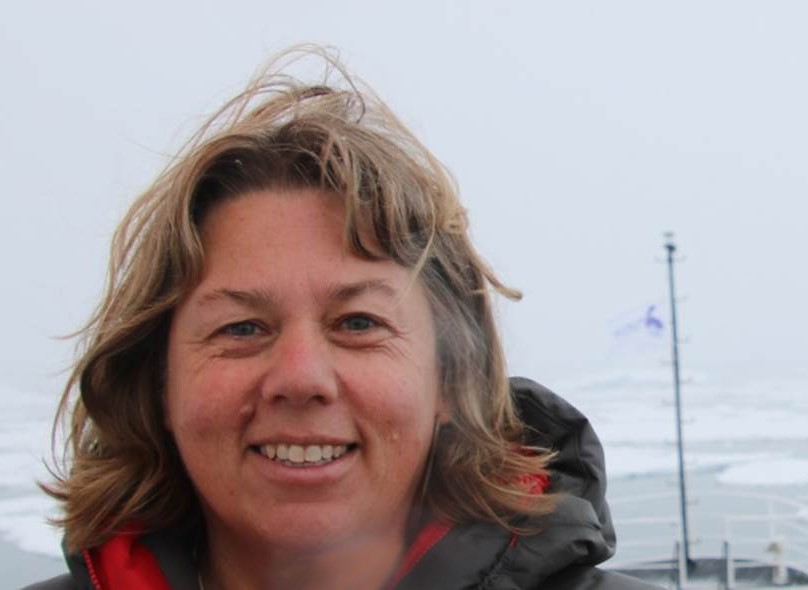
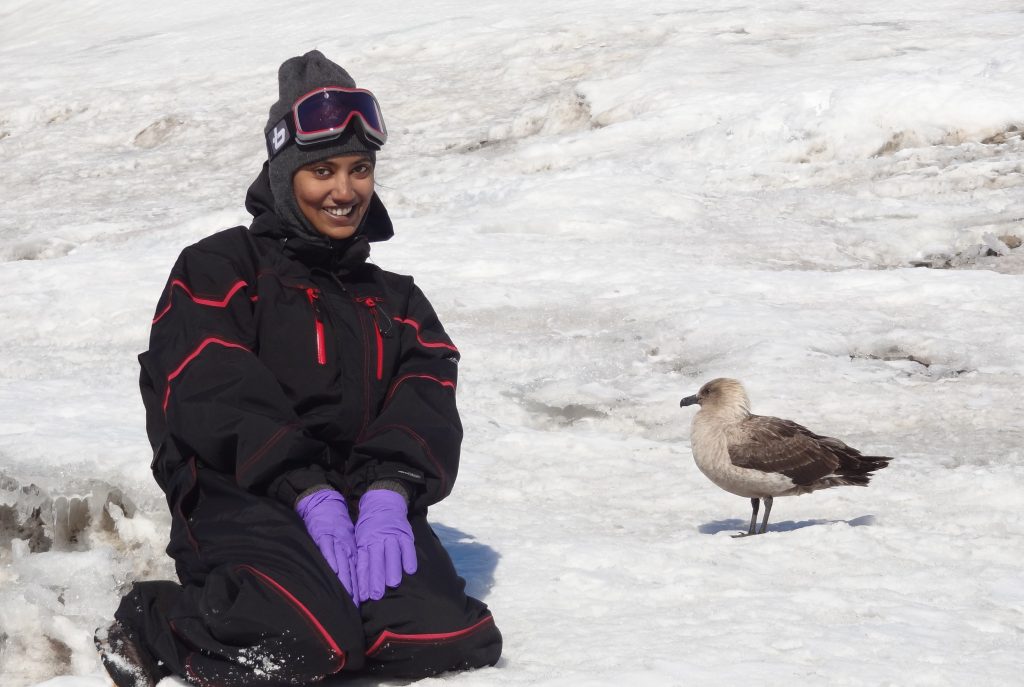
Runa Antony, PhD
Discipline: Polar microbiology, biogeochemistry
Age: 38
Nationality: Indian
Organisation: National Centre for Polar and Ocean Research (India), and German Research Centre for Geoscience (Germany)
Regional focus: Arctic and Antarctic
Social media: ResearchGate
What’s the work that you do?
For little over a decade, I have been working on the interplay between microbial metabolism and the carbon cycle in glacial systems at different spatial and temporal scales. Through my research, I have been trying to understand the nature, sources, on-ice microbial processing and fluxes of organic matter on ice surfaces.
What keeps you going?
What keeps me going is the joy and fulfilment of doing what I love, the truly amazing people with whom I work every day, and the unconditional support of my family. What I love the best about my job is the opportunity to visit and work in these amazing landscapes. It feels great to contribute to the understanding of these environments that are changing so fast!
What’s your message to the world?
I believe that success comes from collaborations. Collaborations bring new perspectives, better solutions, and faster progress. We need this now more than ever – to tackle the great many challenges of our times, especially those brought about by climate change – that no one person, or nation, can solve alone.
Ursula Rack, PhD
Discipline: Polar history
Age: 58
Nationality: Austrian
Organisation: University of Canterbury (New Zealand) and Silversea Expedition Cruises
Social media: Website and Twitter
Regional focus: Arctic and Antarctic
What’s the work that you do?
My passion is polar history, especially social history and history of science. I look into the not so well known Antarctic expeditions to bring awareness of their contribution to science and our understanding of the Polar Regions over the centuries. Events and biographies are linked and I like to understand and highlight these connections. However, I am also researching the people and institutions that worked with the results the explorers brought back. How did exploration influence the expeditioners’ personal lives and those of their relatives? Polar history is very comprehensive.
What keeps you going?
I have been always passionate about history but since my PhD studies, I got completely absorbed in polar history. Working with evidence that I find mostly in archives to strengthen my hypothesis is fascinating. The more I study, the more questions emerge and it keeps me hungry for more information. As a lecturer on expedition cruise ships, I can share my passion and introduce the guests to the Polar Regions and the history of the places we visit. I also teach history into Antarctic studies courses at the university. Research and sharing the results keep me going.
What’s your message to the world?
Our lives are influenced by our history – we can spoil it or enhance it. The extreme conditions in the Polar Regions, especially in the Antarctic, can show us our limits very quickly. However, the Antarctic is not only powerful, it is also very fragile. My aim is to show the dynamics in the Antarctic and the Arctic over time so that many people see the importance of these regions and become active to save them.
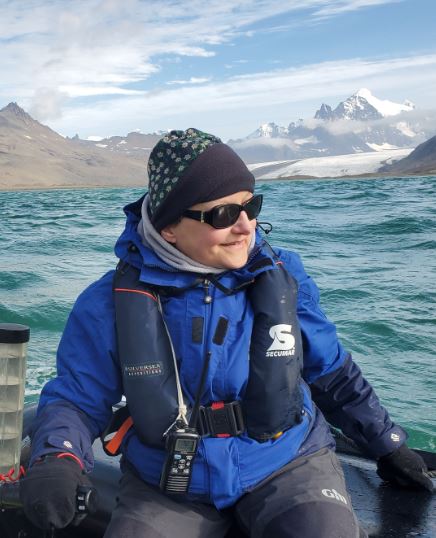
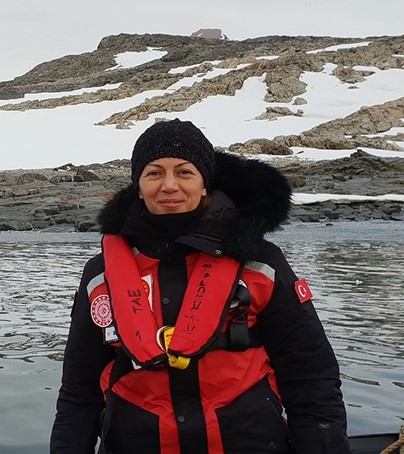
Burcu Ozsoy, PhD
Discipline: Sea ice remote sensing, climate change and polar regions; education and outreach
Age: 45
Nationality: Turkish
Organisation: Polar Research Institute, The Scientific and Technological Research Council of Turkey; Maritime Faculty, Istanbul Technical University (Turkey)
Regional focus: Arctic and Antarctic
Social media: Twitter and Instagram
What’s the work that you do?
As a PhD student, I tracked sea ice surrounding the Antarctic continent via satellite and participated in the Antarctic Science Expedition (2006-2007) to collect in-situ sea ice data for verifying the satellite images. As a scientist, I promote the significance of polar research, in terms of why both Arctic and Antarctic regions play a crucial role in climate systems. I convey the meaning of our changing climate and its impact on these pristine polar regions, and thus on our lives. As an educator, I give lectures and seminars to raise awareness on climate change and the polar regions, and their relationship with other factors such as the ocean current system and sea ice.
I am the founding director of the Polar Research Center at Istanbul Technical University. I led National Antarctic Science Expeditions held in 2017, 2018, and 2019 and was the expedition leader of the first Turkish Arctic Science Expedition (2019). I am currently the director of the Polar Research Institute and as such, coordinated the National Antarctic Science Expeditions between 2019 and 2022.
What keeps you going?
My passion for the polar regions is fed not only by leading the national polar expeditions, but also by getting together with stakeholders to discuss and shape the future of polar research in Turkey. I deeply enjoy holding workshops, collaborating on projects and improving our school curriculum on polar regions and climate change.
What’s your message to the world?
Science and communication are key factors necessary to extend knowledge, especially about polar-related disciplines. The more we understand the importance of the poles as part of our life on Earth, the better we will be able to pursue solutions against anthropogenic effects.
Yliana Rodríguez
Discipline: Linguistics
Age: 38
Nationality: Uruguayan
Organisation: Universidad de la República (Uruguay)
Regional focus: Antarctic
Social media: Instagram and Twitter
What’s the work that you do?
I am studying language contact in the Falkland Islands, particularly Spanish-English contact as evidence of historical events and the meeting of cultures. This particular case is unique, since it is the only one in which an American Spanish variety came into contact with a Southern Hemisphere British English dialect. Language contact in the sub-Antarctic and Antarctic regions is an under-researched -but promising- field of study.
What keeps you going?
Research demands creativity, quick problem solving as well as long term reflection. That is quite a combination of skills, all of which are extremely attractive to me. I love reading and tying the knots, doing ethnographic field-work (chatting with different types of people), and also sitting down for hours in front of my laptop to process and analyse data.
What’s your message to the world?
Linguistic phenomena are transversal to all cultural events. The more educated and knowledgeable we are about them, the better equipped we will be for being better inhabitants of Planet Earth. Polar research, in particular, embodies a distinct environment which should lead to new insights and findings on linguistic matters as well as any other scientific fields.
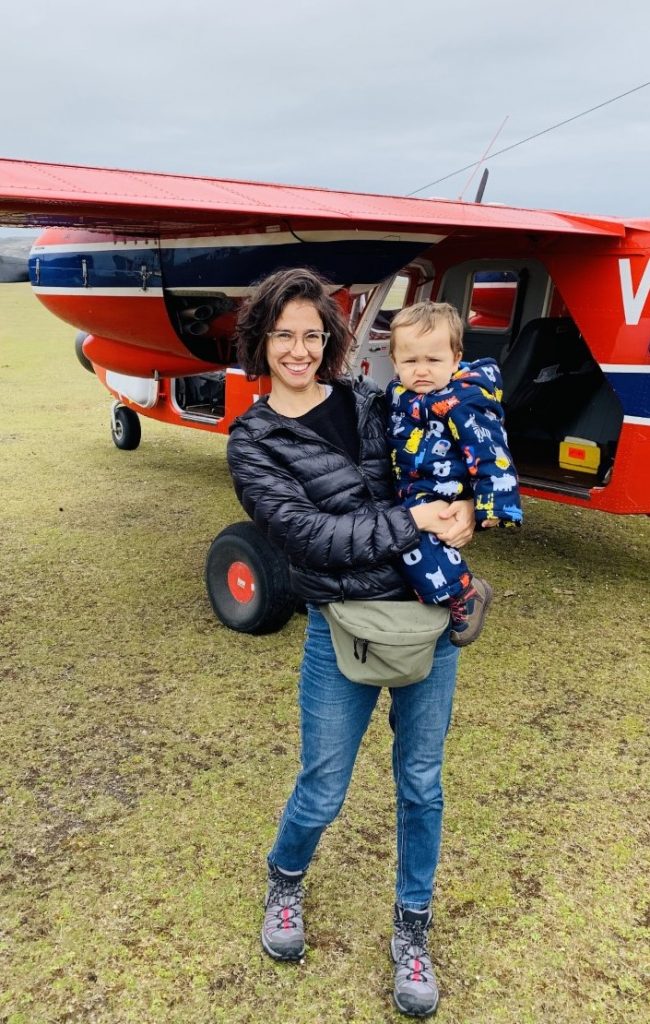
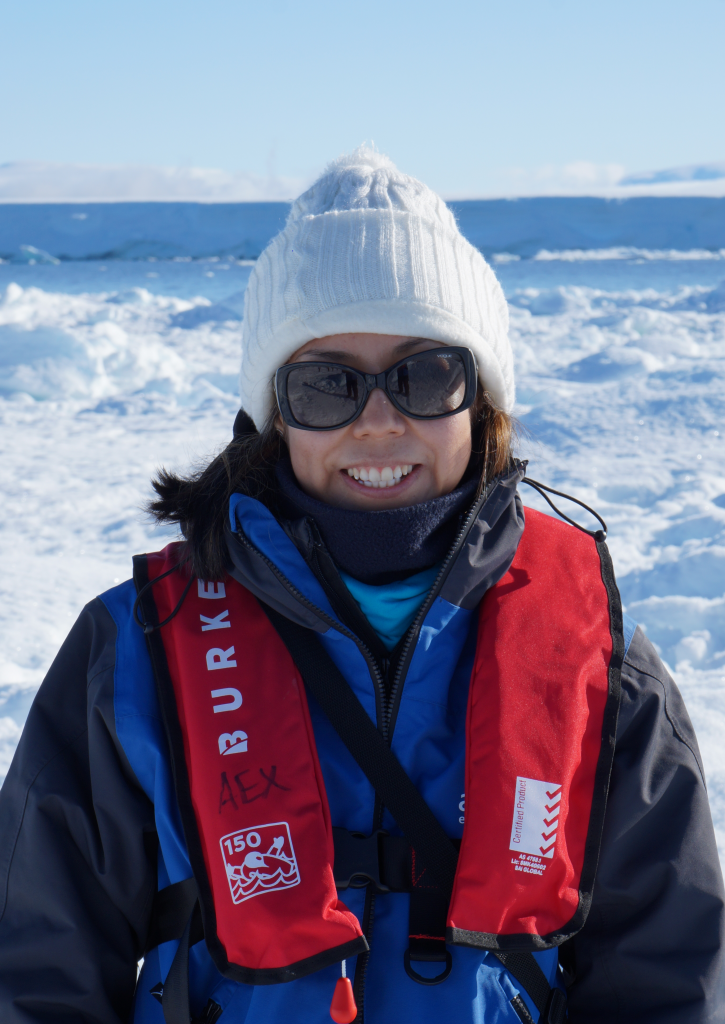
Daniela Cajiao
Discipline: Tourism Studies
Age: 38
Nationality: Ecuadorian
Organisation: Universidad Autónoma de Madrid (Spain)
Regional focus: Antarctic
Social media: LinkedIn and Twitter
What’s the work that you do?
My research interests revolve around Antarctic tourism management and social dimensions. I want to understand the impacts of the activity, the interests and motivations of tourists and how to create better and long lasting experiences while limiting potential impacts to the ecosystems.
What keeps you going?
Antarctica is my passion! It’s where I feel home. My main interest is to contribute to the conservation of the continent by generating research outputs that could be useful for decision-making and policy.
What’s your message to the world?
Antarctica is vital for our lives, but this is still only poorly understood among the general population. People need to realize Antarctica’s importance even without visiting it physically. As scientists, we need to use our research to help others understand this, and we have to deliver this message in many forms and across diverse channels.
Emelia Chamberlain
Discipline: Oceanography/Microbial Ecology & Biogeochemistry
Age: 25
Nationality: US American
Organisation: Scripps Institution of Oceanography, University of California San Diego (USA)
Regional focus: Arctic and Antarctic
Social media: Twitter and Instagram
What’s the work that you do?
Though invisible to the naked eye, I am fascinated by the diverse roles that microbes (microscopic organisms such as bacteria or ice-algae) play within the polar ecosystem. My current research as a PhD student in the Bowman Lab (SIO UCSD) focuses on how microbial diversity mediates the biogeochemical cycles of oxygen and carbon in the rapidly changing Arctic Ocean, using a combination of field observations and modeling approaches.
What keeps you going?
There is so much that we don’t understand about the polar regions, and this greatly inhibits our power to protect. Even though my research questions may sometimes seem insignificant, or only represent a tiny piece of a greater scientific puzzle – you never know what information may hold the key to greater truths. Only by exploring all types of knowledge, can we pursue a greater understanding of our interconnected environment.
What’s your message to the world?
Stay curious! We all start our lives with an innate childhood curiosity about the world around us. By remaining open-minded into adulthood, we stand to learn so much – not only about the natural world, but our fellow human inhabitants as well. Knowledge and open-hearted understanding can only bring good.
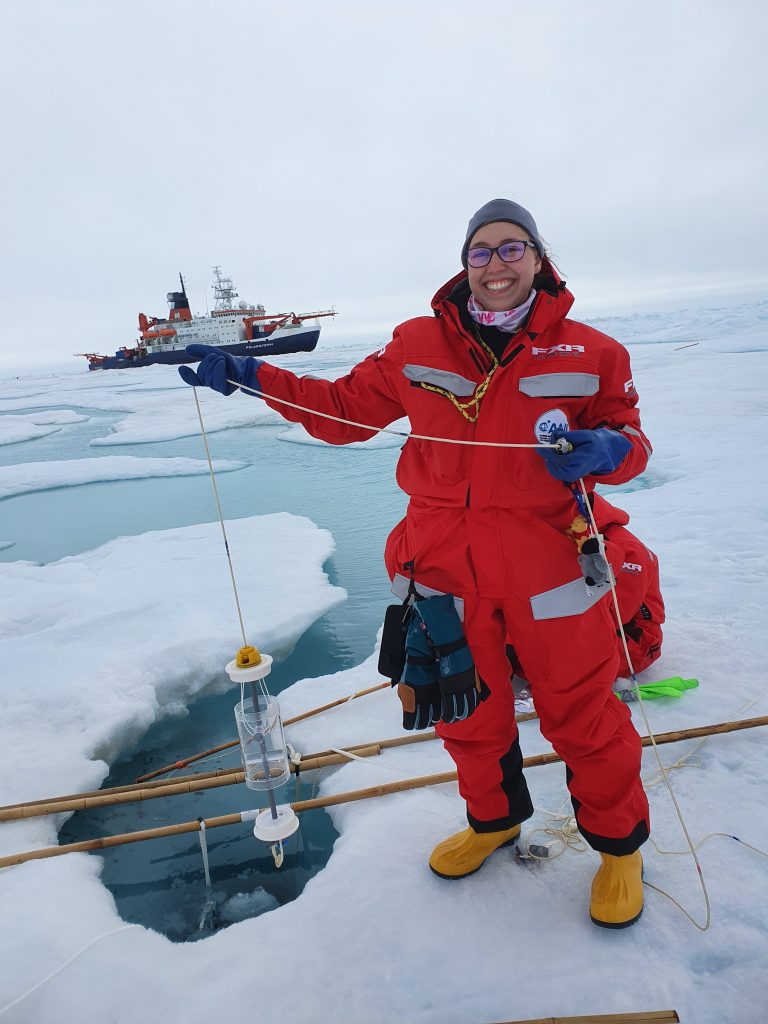
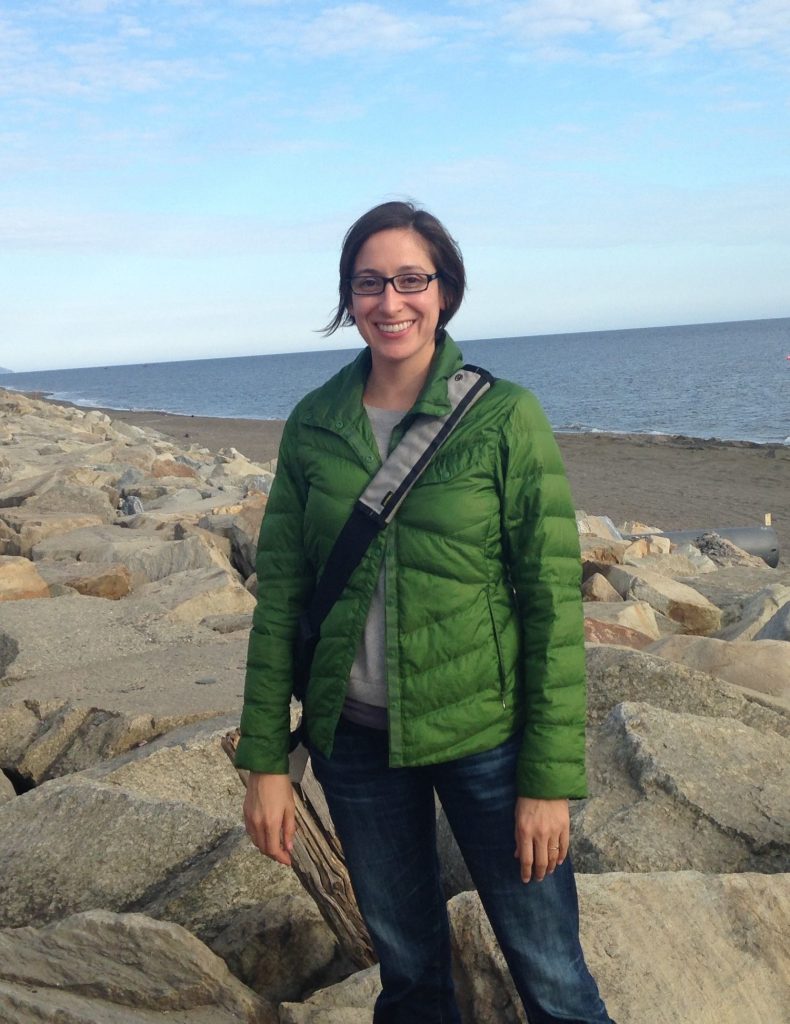
Nikoosh Carlo, PhD
Discipline: Arctic and climate policy
Age: 43
Nationality: United States, Koyukon Athabascan
Organisation: CNC North Consulting (USA)
Regional focus: Arctic (circumpolar with a focus on Alaska)
Social media: Website and Twitter
What’s the work that you do?
As the founder and CEO of CNC North Consulting, I have over a decade of experience guiding clients to develop a vision for their climate change and Arctic priorities while building momentum to achieve change. My true passion is working with organizations that support climate change
equity, and the well-being of Arctic residents and Indigenous peoples.
What keeps you going?
In my Athabascan culture we strive to take care of and respect our elders, our children, our families, our villages. And we also take care of the land and waters that have sustained us in the past, that sustain us now, and that will sustain our future generations. These cultural values are a guide to me in all aspects of my life.
What’s your message to the world?
My cultural values more broadly form the foundation to further strengthen community and environmental resilience. I believe that Indigenous values and worldviews are critical to driving global societies’ response to a rapidly changing environment.
Adele Jackson, PhD
Discipline: Antarctic visual art and culture; Environmental art and education
Nationality: British
Organisation: University of Canterbury; Te Kōhaka o Tūhaitara Trust (New Zealand)
Regional focus: Antarctic
Social media: Website and ResearchGate
What’s the work that you do?
As an artist, I create work that explores human relationships with the natural world. My latest exhibition of Antarctic solargraphs explores planetary dynamics and Antarctica’s role in sustaining life on earth. My research in the field of Antarctic humanities examines cultural representations of and cultural connections with Antarctica through visual art. At the moment I’m researching the art of Mount Erebus. Education is another strand of my work. I currently lead an education programme linked to the rehabilitation of coastal wetlands in Aotearoa New Zealand.
What keeps you going?
The need to explore ideas and make sense of the world through art is a drive that I’ve had since I was a small child. My absolute passion for Antarctica and our cultural engagements with the continent fuel my Antarctic art research interests. The thing I love about working in environmental education is witnessing moments of curiosity and joy, and seeing people develop a deepening interest in and passion for nature. I hope that in some small way the art, writing and education work that I do will reach people and foster their sense of connection with the natural world.
What’s your message to the world?
Our species is responsible for past and current exploitation, extinctions and devastations across the planet. I feel strongly that the values and power base for political and economic decision-making across the globe need to radically shift. Prioritization and protection of the natural world and the earth system demands eco-centric rather than human-centric thinking. This will only happen when people, societies and states recognise and value the interconnectedness of every aspect of nature. To this end, art and education each have a significant part to play in communicating and shaping ideas, values and beliefs.
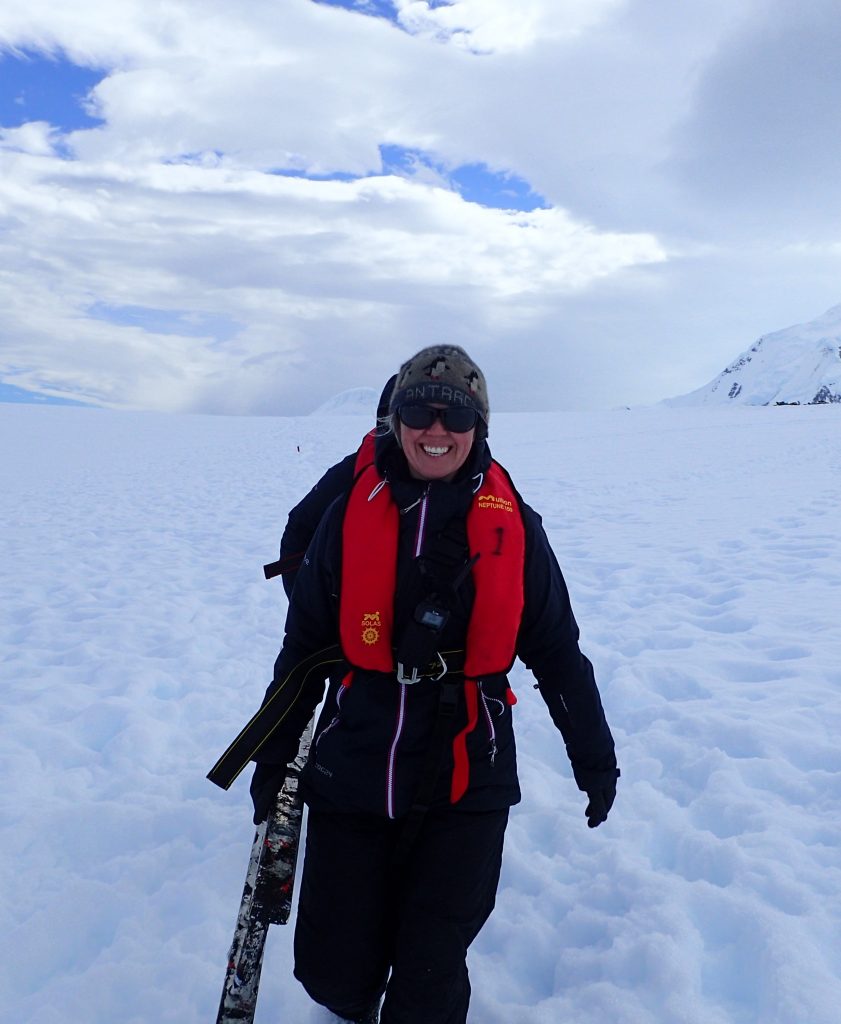
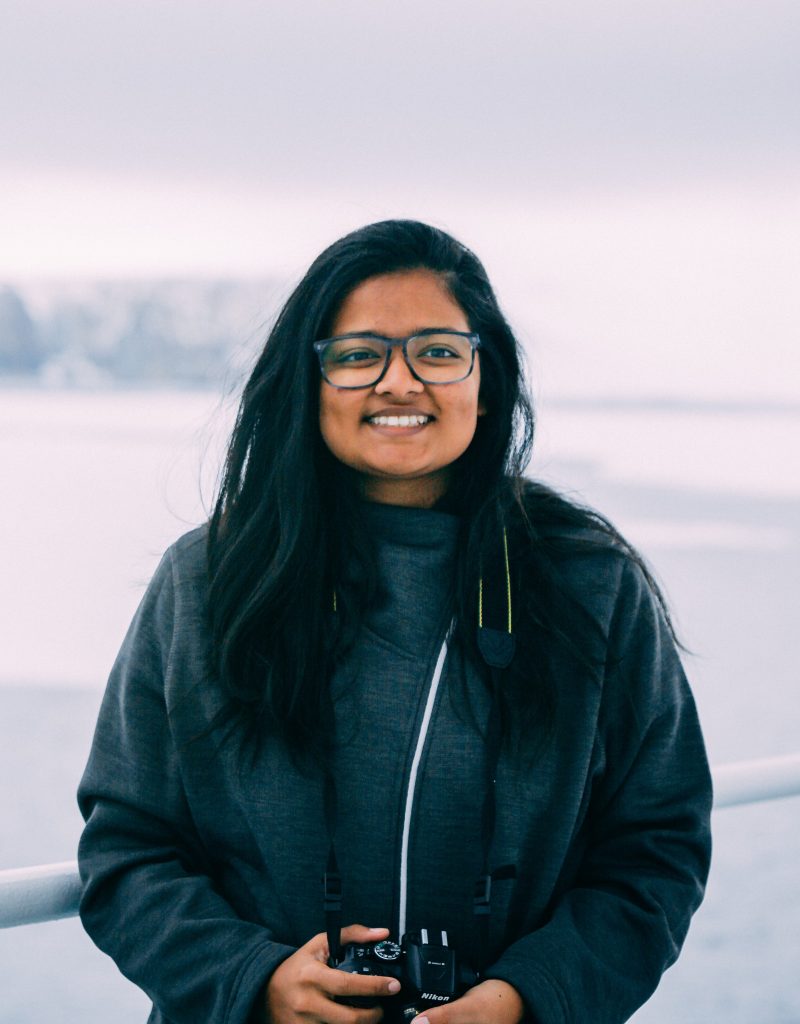
Riesna R. Audh
Discipline: Polar Oceanography
Age: 25
Nationality: South African
Organisation: University of Cape Town (South Africa)
Regional focus: Antarctic
Social media: ResearchGate and Instagram
What’s the work that you do?
I am an early career researcher pursuing a PhD in Oceanography at the University of Cape Town in South Africa. My particular area of interest and expertise is with young sea ice in the Antarctic Marginal Ice Zone. My research uses numerical modelling and sea ice cores to investigate the thermodynamic growth of young sea ice and to simulate the biogeochemical properties of this ice in the Antarctic Marginal Ice Zone. I’m interested in how sea ice grows and influences the surrounding ocean and how climate change would impact the ice environment and in turn our oceans.
What keeps you going?
I am obsessed with sea ice! I think it’s incredibly cool and that more people should know about it. I hope to use my research to increase awareness of the importance of the polar regions and what our changing climate means for these vulnerable regions. I believe that collaboration across institutions and disciplines is crucial for the future of polar research. The experiences I have had in these spaces have affirmed the importance of this for me and motivate me to keep contributing towards collaborative initiatives.
What’s your message to the world?
I am a firm believer in science being accessible and inclusive. Throughout my career in science and in research, this has not always been my experience. This has led me to play an active role in facilitating change and transformation within the spaces I occupy. I believe that accessibility, inclusivity and visibility are vital in order to grow this field and encourage the next generation of polar researchers.
Hanne Nielsen, PhD
Discipline: Antarctic Studies
Age: 32
Nationality: New Zealander
Organisation: Institute for Marine and Antarctic Studies, UTAS (Australia)
Regional focus: Antarctic
Social media: Website and Twitter
What’s the work that you do?
I am a lecturer in Antarctic Law and Governance at the Institute for Marine and Antarctic Studies, University of Tasmania. People and Antarctica is my area of expertise – I am interested in the ways we interact with, imagine, and narrate the south polar region. My research focuses on representations of Antarctica in popular media, including in theatre and advertising material. I also have an interest in polar tourism and Antarctica as a workplace, research that is informed by my 5 seasons as a guide in the Southern Ocean.
What keeps you going?
Antarctica is at the heart of what I do every day. I enjoy sharing my enthusiasm about this incredible continent with my students, colleagues, family and community, but the best part is hearing how other people imagine and narrate the ice (in literature, in film, in advertisements, around the dinner table). Antarctica is important on a global scale – and so are the stories that we carry around in our heads about the continent, because without a connection to a place it’s difficult to care about and protect it.
What’s your message to the world?
Be kind. Listen well. Dream big.
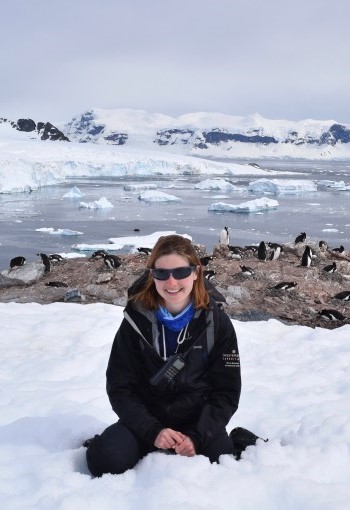
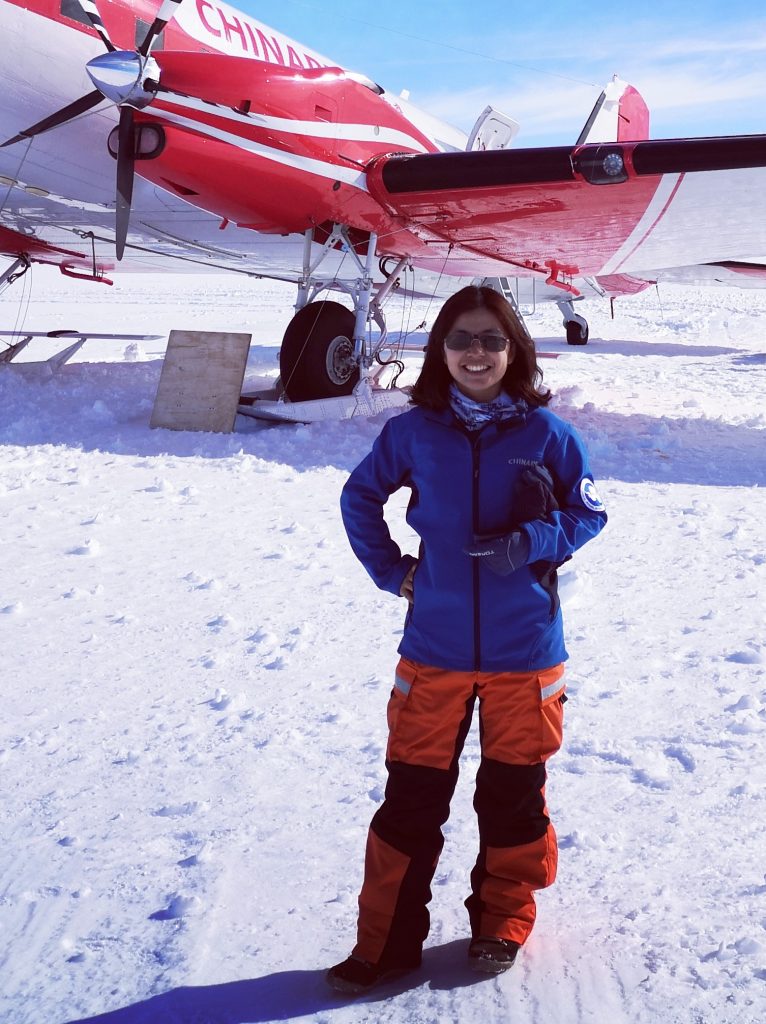
Xi Zhao, PhD
Discipline: Sea ice remote sensing
Age: 37
Nationality: PR China
Organisation: Polar Science Center, Sun Yat-Sen University (China)
Regional focus: Antarctic
Social media: ResearchGate
What’s the work that you do?
I am a polar scientist with a PhD in remote sensing from the University of Twente in The Netherlands. I measure polar sea ice through satellite images to answer questions like where is the ice and how quickly does its extent change with increasing temperatures. Furthermore, I am interested in researching those parts of Antarctica that we cannot observe accurately by remote sensing. I want to know how the uncertainty contributes to our knowledge.
What keeps you going?
Curiosity keeps me going. To learn just about anything about nature, you need to start with simple observations around you. I participated in the 36th Chinese Antarctic scientific expedition in 2019-2020, where I performed aviation observation tasks as part of an international campaign, ICECAP/PEL, to survey Princess Elizabeth Land (PEL). When I was in China’s research air plane, the “Snow Eagle”, looking down at the gorgeous icebergs and intricate ice floe patterns, I was proud of my work: getting to know this beautiful ice by observing it.
What’s your message to the world?
In the past, it was only explorers who could reach the poles, but today, they are more accessible – especially via remote sensing! If an idea is our captain, then remote sensing is our ship to explore the world. You can go however far your imagination takes you.
Joanna Martin Davies
Discipline: Arctic paleoclimates
Age: 28
Nationality: British
Organisation: Department of Geoscience, Aarhus University (Denmark)
Regional focus: Arctic
Social media: Twitter and Instagram
In collaboration with ECOTIP Women in Science
What’s the work that you do?
I am a PhD student working in Arctic paleoclimates, reconstructing what ice and the oceans were like thousands of years ago. This is important because we only have relatively short instrumental records, so if we are to understand how the Arctic may change with climate change in the future, we need to know what happened in the past. We do this by looking at sediment cores collected from marine environments all around Greenland.
What keeps you going?
From a young age, I have been interested in climate change, particularly in polar environments. Changes in the Arctic are some of the most visible signs that our climate is changing; it provides stark evidence that we need to act to reduce emissions fast. I believe that it is so important that we understand these environments and the changes they are undergoing. In short, this is what motivates me!
What’s your message to the world?
Climate change can seem overwhelming at times, but I believe collectively we can make a difference!
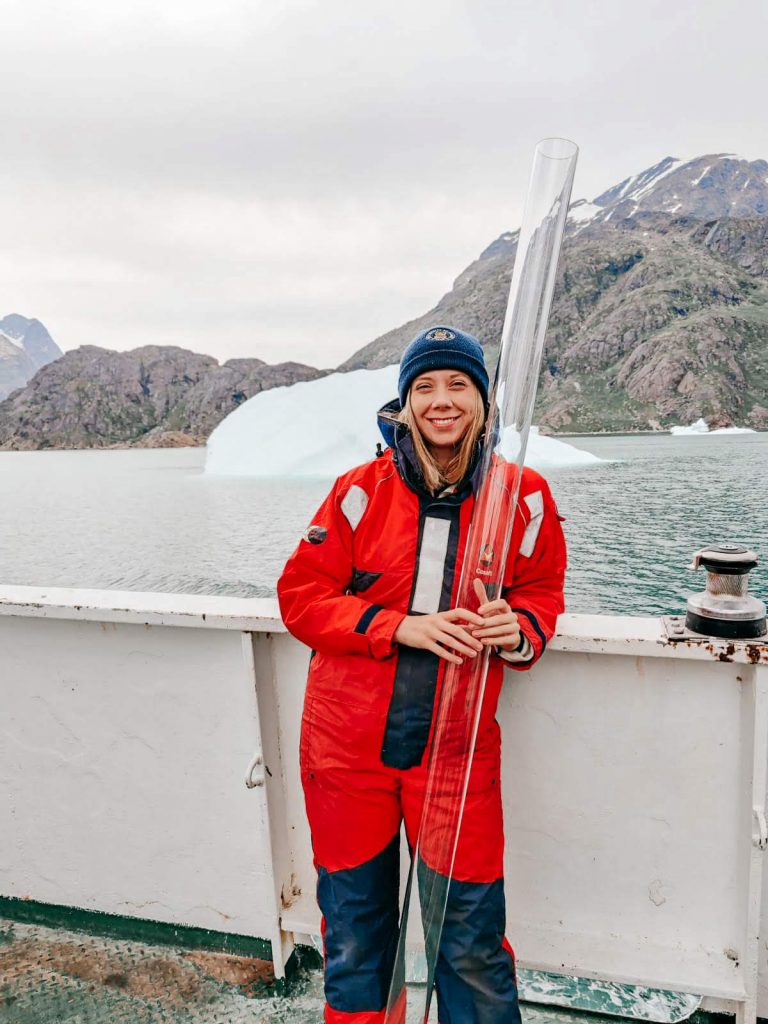
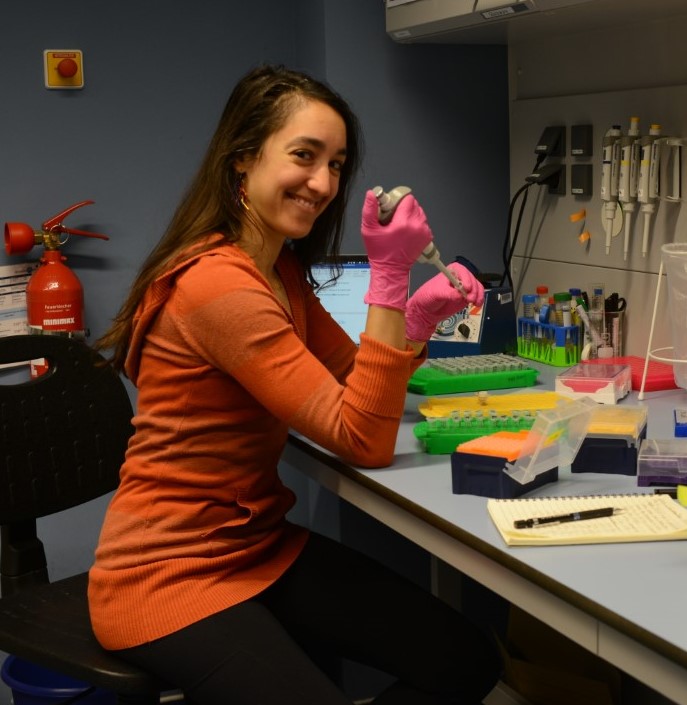
Jilda Alicia Caccavo, PhD
Discipline: Marine Biology
Age: 35
Nationality: US-American
Organisation: Alfred Wegener Institute; Berlin Center for Genomics in Biodiversity Research; Leibniz Institute for Zoo and Wildlife Research (all Germany)
Regional focus: Antarctic
Social media: Website
What’s the work that you do?
I use an assortment of methods, including genomics, modeling, and trace element analysis, to understand population dynamics in Antarctic species in the Southern Ocean. I then work with international science and policy managers to transform my findings into fisheries and spatial planning advice, with the ultimate goal of conserving Antarctic biodiversity and ecosystems.
What keeps you going?
My place in the polar sciences is incredibly intentional. I didn’t follow a path of least resistance to get here. I left neurobiology after spending 8 years in that field because I wanted my work to have a positive impact on the planet. Knowing that my research is actively supporting the conservation of Antarctic species and ecosystems is what makes it worth investing my time and passion.
What’s your message to the world?
I’ve never been to the field. Maybe I’ll go one day. But I don’t care that I haven’t been. What excites me about my work is sitting at my desk with a cup of tea after having lunch in my vegetable garden with my partner. “There’s a lot of beauty in ordinary things”.
Michaela Stith
Discipline: Interdisciplinary; Environmental Science and Policy
Age: 25
Nationality: US-American
Organisation: Polar Institute, Woodrow Wilson International Center for Scholars (USA)
Regional focus: Arctic and Antarctic
Social media: Twitter and Instagram
What’s the work that you do?
I am the author of Welp: Climate Change and Arctic Identities, a travel memoir about environmental justice in the circumpolar North. At the Polar Institute in Washington, D.C., I organize events about Arctic and Antarctic policy, coordinate two blog columns, manage the scholarly publication Polar Perspectives, and direct “The Arctic in 25 Years” Youth Symposium. My best work centers Indigenous and Black people in thought leadership about Arctic research and policy.
What keeps you going?
Alaska is my lifelong home. I always imagined my future children and theirs would have ice to slide on, healthy streams to fish from, and old forests to walk in. But the Arctic Ocean may see its first ice-free summers in 25 years, and the Anthropocene is already transforming northern environments. The conviction among Arctic peoples that their home can be more thriving and equitable for future generations is what keeps me going.
What’s your message to the world?
Climate change is a cultural problem embedded in our relationship with the environment. This means all climate change mitigation and adaptation should focus on human rights and self-determination. Ultimately, a standard of whiteness in science and policy created climate change—and other systemic problems like mass incarceration—in the first place.
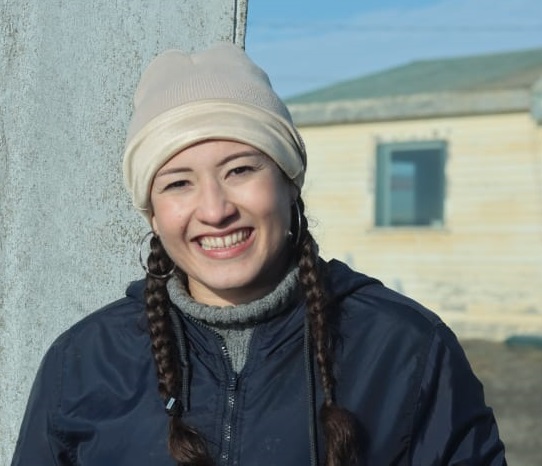
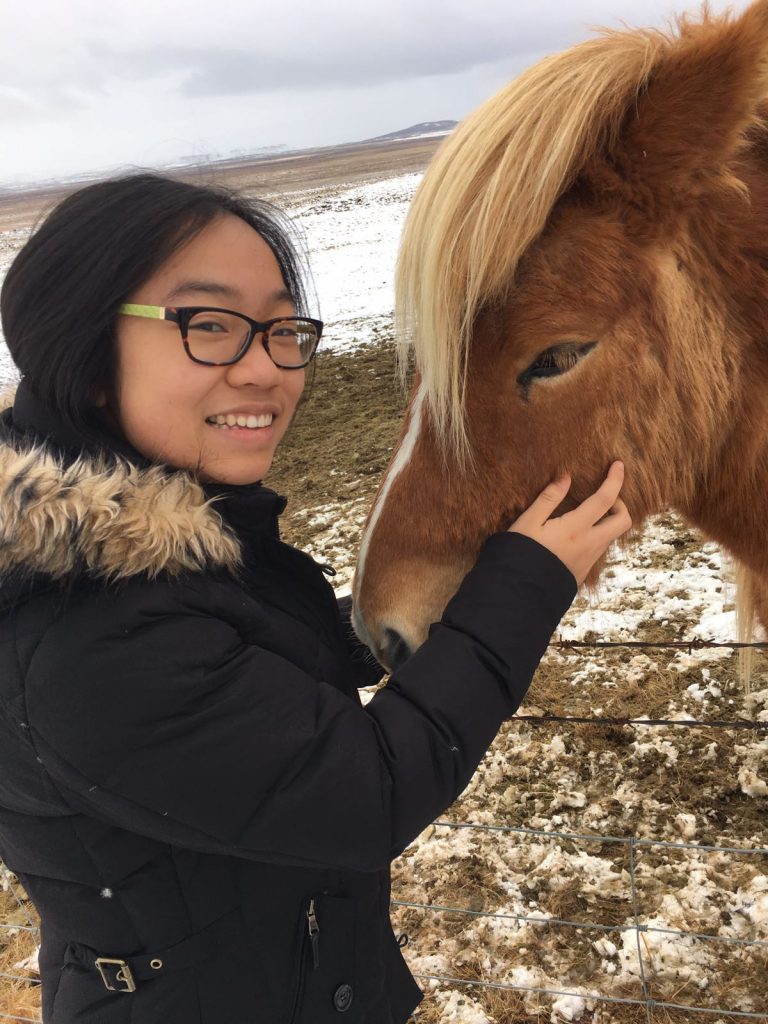
Emily Chen
Discipline: Marine Ecology
Age: 25
Nationality: US-American
Organisation: Institute of Oceanography, Polish Academy of Sciences (Poland)
Regional focus: Arctic and Antarctic
Social media: ResearchGate
What’s the work that you do?
I am a marine biologist who has participated in projects ranging from nutrient stoichiometry to environmental DNA to range shifts of marine invertebrates. These experiences helped me take a holistic approach towards my PhD research on Arctic and Antarctic ostracods, which are tiny crustaceans present in all the oceans. They are important links in the food web and can reveal information about ocean conditions in the context of climate change.
What keeps you going?
What keeps me going is my passion for research and having the platform to share knowledge about polar marine life to inspire change. It’s comforting to know that all marine scientists share a common goal to understand and help our oceans. Although I am working in experimental-based research, I will keep communicating science and advocating for people that will be the most impacted by the threats facing the Polar Regions.
What’s your message to the world?
For those looking for ways to get involved in marine science and conservation, there is something for everyone. Our ocean is complex and it takes many skills to protect it, including law, graphic design, public speaking, and web design. Don’t be afraid to reach out and get started!
Lu An, PhD
Discipline: Glaciology (Polar Remote Sensing)
Age: 32
Nationality: PR China
Organisation: Tongji University, Shanghai, China
Regional focus: Arctic and Antarctic
Social media: Google Scholar and Facebook
What’s the work that you do?
I joined Eric Rignot’s research group at UC Irvine in 2011 and graduated with a Ph.D. in 2017. Currently, I work at the College of Surveying and Geo-informatics, Tongji University, China. I have been working on using high-resolution airborne gravity data combined with other data sets to infer the bathymetry of fjords and bed topography of glaciers in Greenland and Antarctica. The aim is to create data sets that are critical to understanding the role of ice-ocean interaction in controlling the evolution of glaciers and ice sheets.
What keeps you going?
For almost ten years, I conducted research in polar science with my advisor at UC Irvine. He is a great scientist full of enthusiasm, which was inspiring in all these years of hard work. You could say he was a lighthouse on my way to pursue the truth of science. And the field experiences in Alaska (2016) and Greenland (2018) also inspired me to continue my research in the Polar area.
What’s your message to the world?
As the climate changes, global sea level rise will be one of the major environmental challenges of the 21st Century. I would like to contribute my effort to improve our estimates of sea level rise by figuring out how oceans interact with glaciers in Greenland and Antarctica.
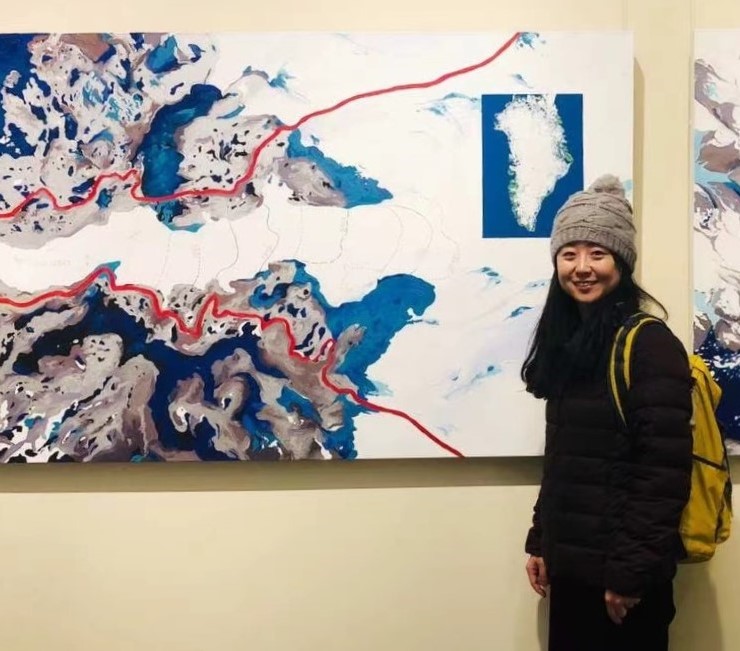
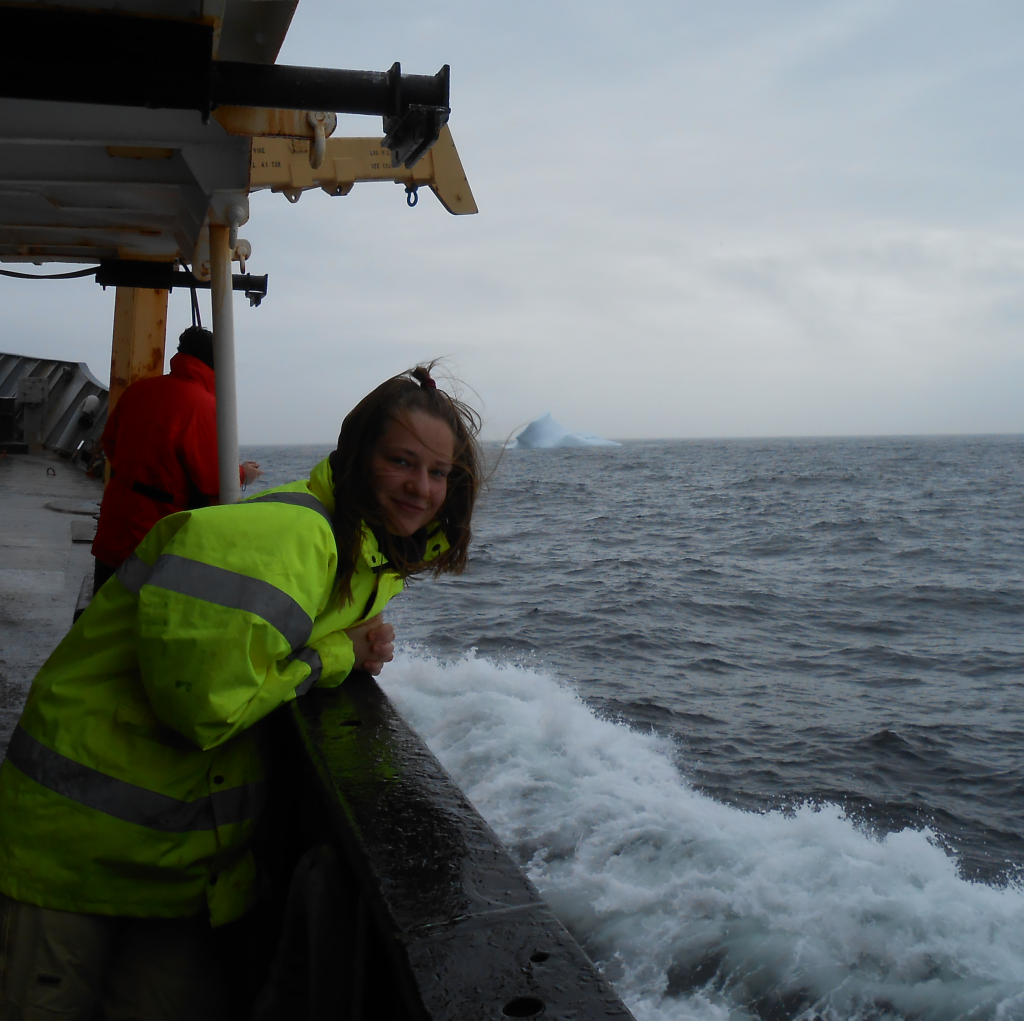
Alexandra Filippova, PhD
Discipline: Marine Geochemistry and Paleoceanography
Age: 34
Nationality: Russian
Organisation: GEOMAR Helmholtz Centre for Ocean Research Kiel (Germany)
Regional focus: Arctic
Social media: Twitter
What’s the work that you do?
I am a marine geochemist. I work in the Labrador Sea and Canadian Arctic Archipelago. Based on different paleo proxies, I reconstruct past climate conditions and water mass circulation patterns. I am particularly interested in Heinrich Stadials, their true origin and effect on the deep water mass production in the past and how it is comparable to the modern day situation characterized by increased glacial meltwater runoff due to climate change.
What keeps you going?
The mystery of the unknown. There is still so much we don’t know or don’t understand from our past history. I think to understand where we are going it is important to learn where we have been. And I hope to shed more light on the history of our increasable world and processes that happened in the past.
What’s your message to the world?
If someone told me 20 years ago that I will become a scientist, work in Germany, write scientific papers, present at conferences, I would have never believed them. Not only because people thought I am not smart enough, but also because they thought it is not who I can be. Never let other people dictate you who you are or who you will be. Be who you want to be and believe in yourself.
Jessica O’Reilly, PhD
Discipline: Anthropology
Age: 43
Nationality: US-American
Organisation: Hamilton Lugar School of Global and International Studies, Indiana University, Bloomington, USA
Regional focus: Antarctic
Social media: Twitter and Faculty website
What’s the work that you do?
I am an environmental anthropologist who studies Antarctic and climate change scientists and policymakers, learning about how people translate between scientific knowledge and environmental management and policy. One of my longstanding interests revolves around how people grapple with scientific uncertainty, particularly that of the Antarctic ice sheet’s future. I also work with the Antarctic and Southern Ocean Coalition and the United States delegation to the Antarctic Treaty Consultative Meetings.
What keeps you going?
My love for learning and my love for the world. My students, who are renewable sources of energy, optimism, and idealism. My family. And knowing just how many smart, committed people are working daily on solving the problems brought about by climate change.
What’s your message to the world?
“Listening to the science” only gives us part of the picture—and the science doesn’t give us the solutions even once we understand the climate crisis. Addressing anthropogenic climate change requires other kinds of work in addition to the brilliant research that scientists conduct: political work, justice work, policy work, and work in our communities. We all—scientists, social scientists, artists, leaders, children, and so on—have something to contribute.
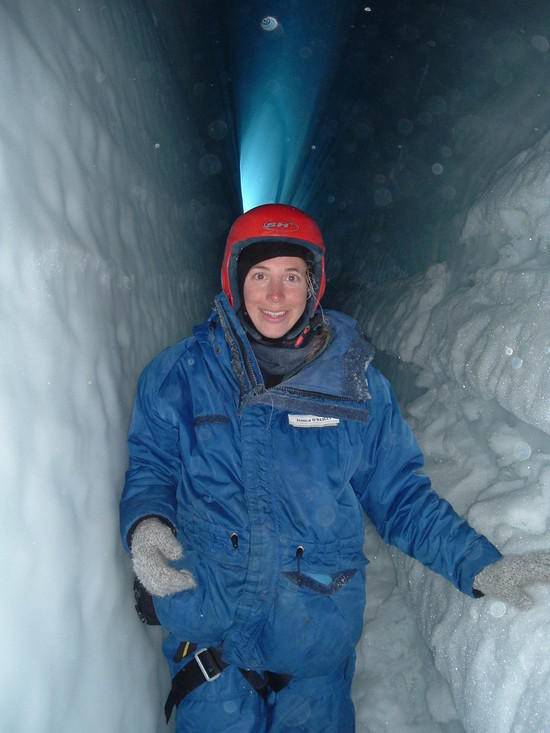
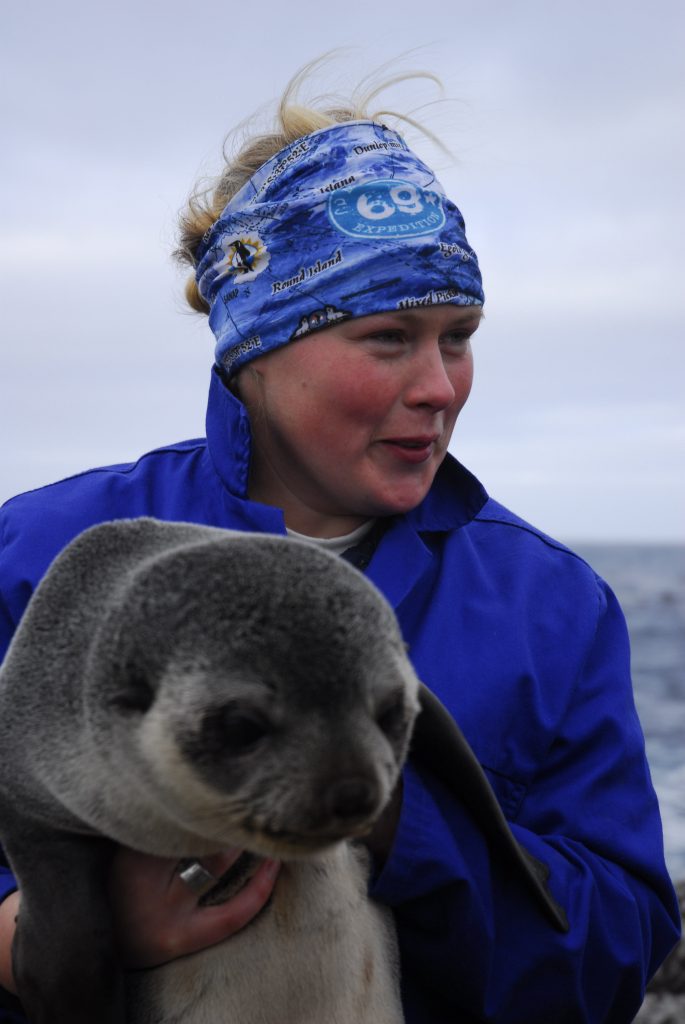
Mia Wege, PhD
Discipline: Marine predator ecology
Nationality: South African
Organisation: University of Pretoria (South Africa)
Regional focus: Antarctic and sub-Antarctic
Social media: Twitter and Website
What’s the work that you do?
I am interested in using novel developing technologies and quantitative methods to understand species distributions and relationships with their environment. My research broadly focuses on the distribution, habitat use and foraging ecology of marine predators. Specifically, I am interested in their at-sea behaviour and its influence on the population dynamics. This research includes work done on Antarctic and sub-Antarctic fur seals, Weddell, Ross, and crabeater seals.
What keeps you going?
Working with similarly passionate people who believe in what they do and also get excited by the science. And of course, fieldwork! Having the privilege of working hands-on with wild animals and observing their unique behaviour and personalities keeps me coming back for more. Those Antarctic sunsets and sunrises make it even more special.
What’s your message to the world?
We can do something about climate change – we just need to work together.
Dalia Barragán Barrera, PhD
Discipline: Marine Biology (specialized in Marine Mammals)
Age: 36
Nationality: Colombian
Organisation: R&E Ocean Community Conservation Foundation, and Fundación Macuáticos Colombia
Regional focus: Arctic
Social media: Facebook
What’s the work that you do?
I’m a Marine Biologist with a PhD in Biological Sciences. I’m a native of Bogotá in Colombia (not Columbia). My first passion was whales (I had watched the “Free Willy” movie!), but when I discovered that killer whales are indeed dolphins, I was captivated by these small cetaceans. Therefore, my work has been focused on conservation, distribution, ecotoxicology, and genetics of marine mammals, as well as environmental education and science divulgation.
What keeps you going?
My daughter Martina and my nieces María José and Ana Sofía, not only because they are girls, but also because they are children living in a developing country like Colombia. For them, I continue working, and although currently I don’t have a position, I plan to be a professor or work in the government, to try to support young students to be whatever they want to be.
What’s your message to the world?
All people have the same right to live in a better world and be whatever they want to be. All aspirations are valid, but we need the same conditions to achieve the dreams. Therefore, we must try to whatever we can – that can be small actions, such as being respectful with ourselves and others (including nature), voting well to demand health, food, education and environmental protection, among other fundamental rights. One candle can make a difference, because we will be millions of candles demanding and doing equity in the world.

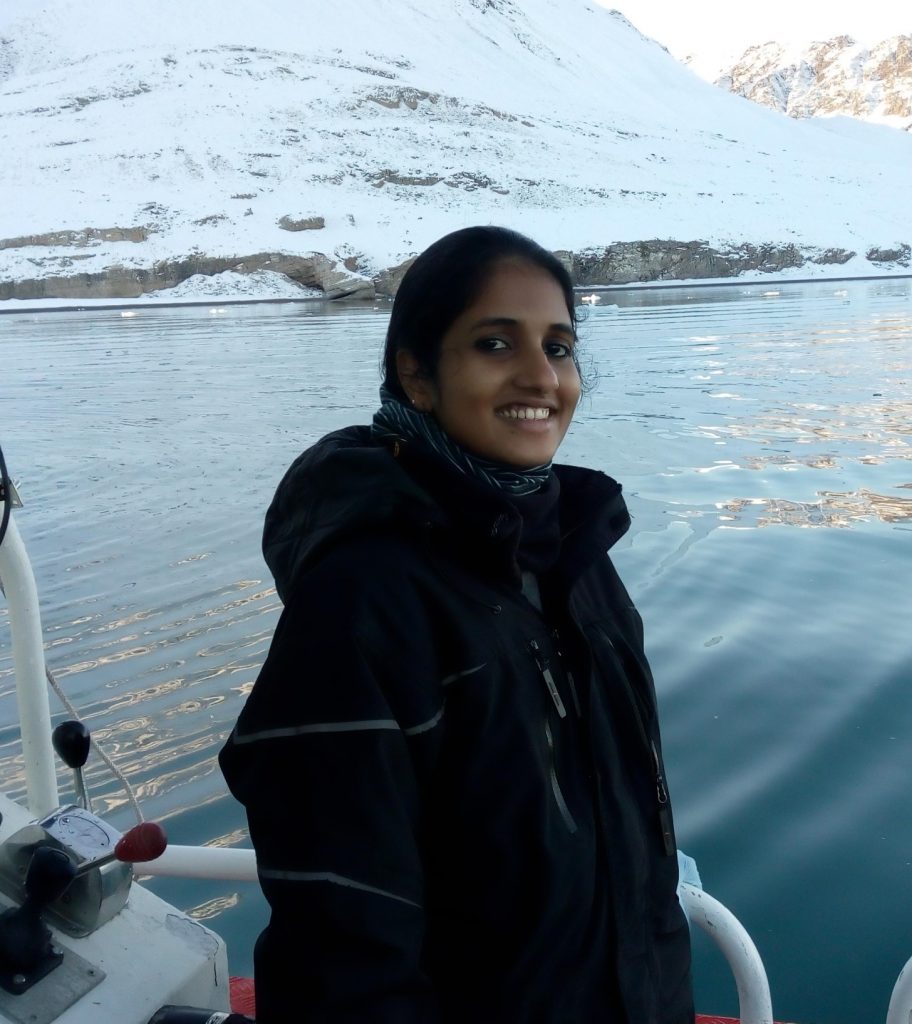
Femi Anna Thomas
Discipline: Marine Biology (specialized in Microbial Ecology)
Age: 30
Nationality: Indian
Organisation: National Centre for Polar and Ocean Research (India)
Regional focus: Arctic
Social media: Facebook and Twitter
What’s the work that you do?
I am a Polar early career researcher pursuing my PhD in Arctic bacterial diversity and metal-bacterial interactions. I have always been fascinated with the tiny microbial world which motivated me to pursue a PhD in the same field. My work mainly focuses on understanding who are the major bacterial players in different Arctic ecosystems? What do they do there? How do they face the different stresses caused by environmental contaminants?
What keeps you going?
My passion for understanding the unknown has always motivated me in my research career. My family, friends and colleagues are a constant support to keep me going. Another motivating factor is the research work in Arctic which is equally inspiring and challenging.
What’s your message to the world?
Enjoy what you are doing! Keep a motivation check and always give importance to your mental health. Share your ideas and keep yourself updated – this can definitely help in gaining new perspectives. Love nature and be a pro in understanding the different environmental issues. Be part of the solution. Love yourself, keep smiling and cherish every moment of your life.
Harmony Jade Sugaq Wayner
Discipline: Coastal and Marine Management
Age: 24
Nationality: Alaska Native
Organisation: University Centre of the Westfjords (Iceland); Igiugig Village (Alaska)
Regional focus: Arctic
Social media: Facebook and Instagram
What’s the work that you do?
I’m Alutiiq from Naknek Native Village. I am an interdisciplinary graduate student in Iceland, focused on how Indigenous and Western fisheries knowledge systems combine to manage Alaskan fisheries better. My thesis is on the well-being of Indigenous communities and the link to harvesting wild foods of the land.
What keeps you going?
I am fueled by my family back home in Western Alaska, my village (Naknek), and my Native Corporation (Bristol Bay Native Corp.) and all the support they give me. I am a proud 4th generation woman commercial fisher in the Bristol Bay sockeye salmon fishery. Fishing gave me a gritty work ethic and helped pay for my education.
What’s your message to the world?
Take opportunities to push yourself out of your comfort zone and make time and space to rest. Every year, I put up fish with my family and spend time on my home’s tundra, ocean, and river. A system that has historically oppressed Indigenous peoples, people of color, and women won’t change overnight. Take care of yourself in this work.
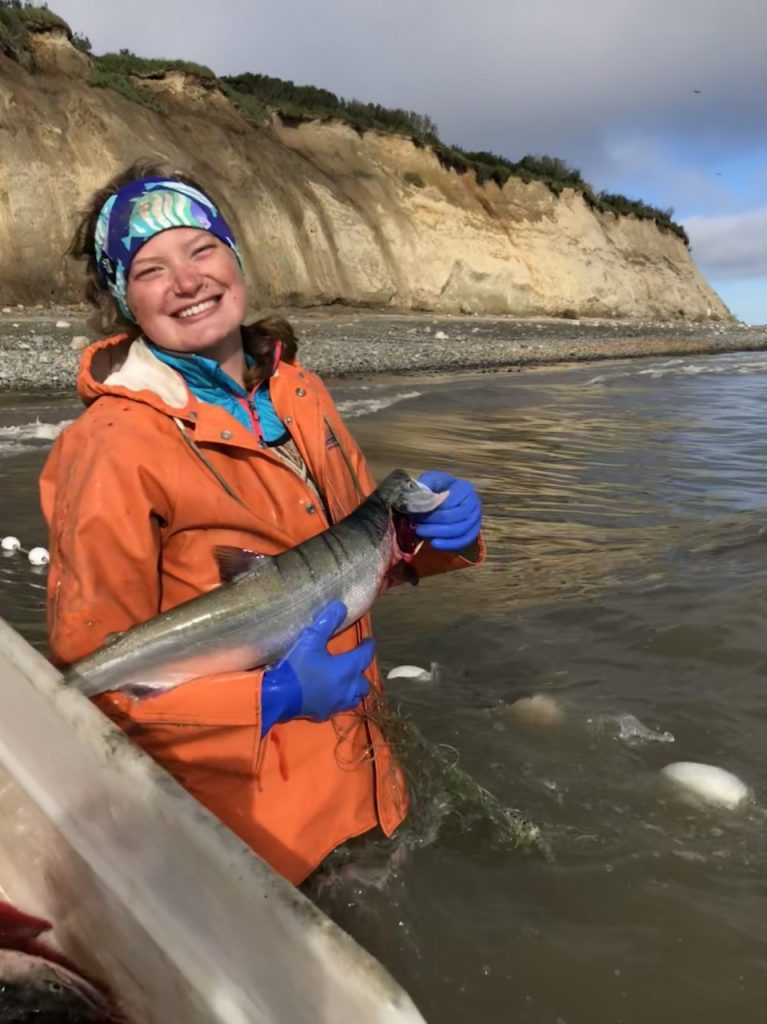
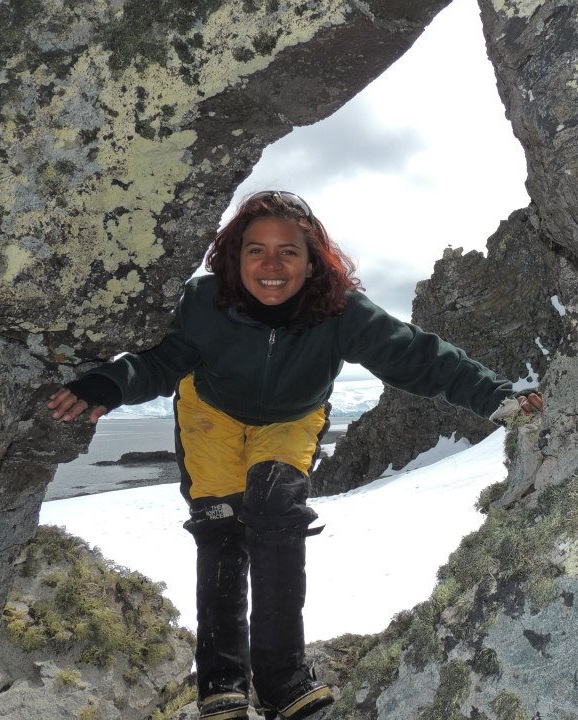
Juliana Souza-Kasprzyk, PhD
Discipline: Polar Ecotoxicology
Age: 33
Nationality: Brazilian
Organisation: APECS Brazil, Adam Mickiewicz University (Poland)
Regional focus: Arctic and Antarctic
Social media: Instagram
What’s the work that you do?
I am a Brazilian biologist with a PhD in Biological Sciences. I have been studying the contamination of the polar environment since 2011, having had the opportunity to participate in scientific expeditions to the Arctic and Antarctica. I have been focusing on the anthropogenic impact in these regions, but also trying to understand the role of seabirds in absorbing, eliminating, transporting and mobilizing those contaminants.
What keeps you going?
Since I was a child, I dreamed of being a scientist. I get the pleasure and fulfilment of working with what I love and it makes me want to keep moving forward. This year, my life changed completely when my daughter Cecilia Aurora was born. This is another reason to smile and fight every day for a more diverse, fair, equal, inclusive and equitable society.
What’s your message to the world?
“And your will shall decide your destiny!” When you really want something and try hard, you can achieve everything you want. Just don’t give up on the first adversity. I wish for everyone, but especially for us girls and women, the opportunity to be what we want to be!
Yulan Zhang, PhD
Discipline: Cryospheric chemistry and environment
Age: 38
Nationality: PR China
Organisation: Northwest Institute of Eco-Environment and Resources, Chinese Academy of Sciences, China
Regional focus: Arctic
Social media: WeiChat (13919978700)
What’s the work that you do?
For the past decade, I have been working to understand pollutants and the environmental impacts they have on glacier melting, carbon and nitrogen cycles, and climate change in the cryospheric regions.
What keeps you going?
Climate change and what it means for human development in the future is a fascinating topic to study, and my fascination with it keeps me going. In particular, how will the cryosphere change under climate warming at the end of the 21st century? What role do carbon and nitrogen bio-geochemical processes in the cryosphere play in relation to climate change? What impacts do cryospheric changes have on climate change and sea level rise?
What’s your message to the world?
Black carbon, an anthropogenic pollutant, can hasten glacier melting. When glaciers melt and permafrost thaws, greenhouse gas emissions will increase, which has the potential to further warm our climate. We need to keep studying this to understand the role humans play in how our climate is changing.

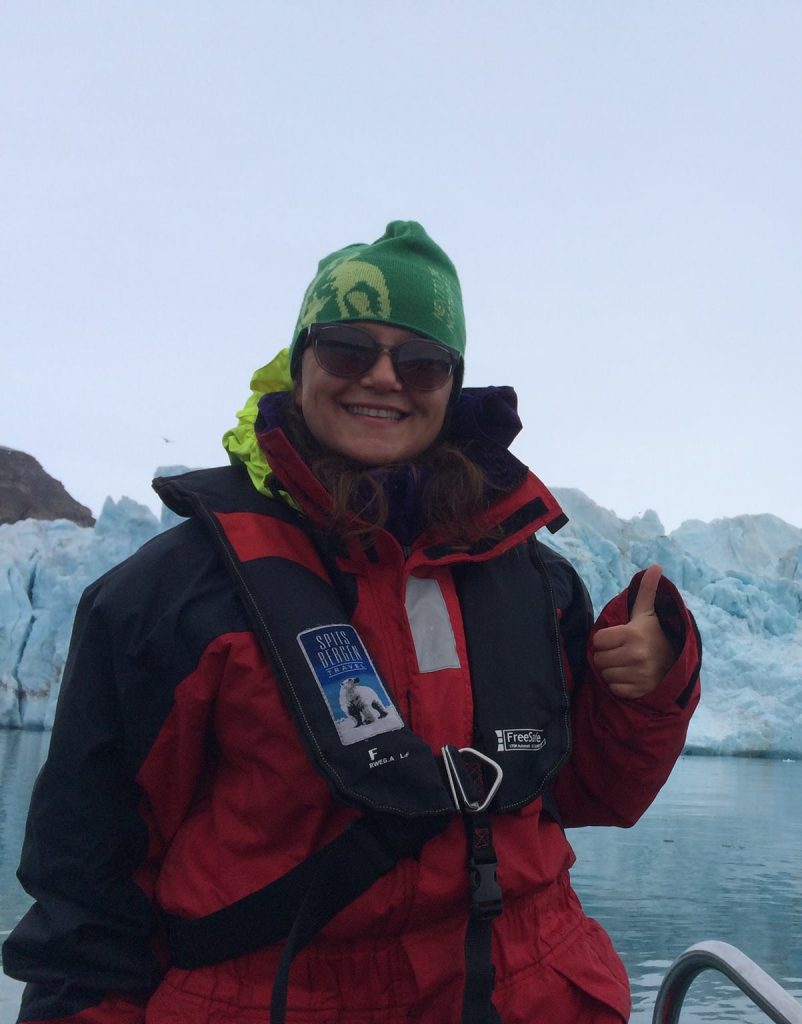
Ebru Caymaz, PhD
Discipline: Social Sciences (International Relations)
Age: 35
Nationality: Turkish
Organisation: Canakkale Onsekiz Mart University, Turkey
Regional focus: Arctic
Social media: Twitter
What’s the work that you do?
Previously, I was working as a volunteer to increase awareness of human-induced climate change. I’ve traveled across the Arctic, collected my data, and organized public events in Turkey. Traveling to Greenland completely changed my perspective on this process. As an ERC in the field of social sciences, which is another challenge for me to conduct fieldwork, I have been studying and trying to develop an inclusive/adaptive governance framework for the Arctic communities. I have traveled through Greenland twice and conducted in-depth interviews with the local communities.
What keeps you going?
I’ve attended several conferences (such as Arctic Science Summit Week, Arctic Frontiers, Arctic Social Sciences Conference, and Arctic Change) and got connected to a wider world of scholars. Both senior researchers, as well as my peers, have motivated me to proceed.
What’s your message to the world?
At the nexus of science and diplomacy, based upon the pillars of political will, diplomatic involvement as well as governmental support, polar science diplomacy holds the potential to unify resilience efforts pertaining to the poles and develop inclusive governance models.
Kimberly Aiken
Discipline: International Environmental Policy
Age: 35
Nationality: US-American
Organisation: Antarctic and Southern Ocean Coalition
Regional focus: Arctic and Antarctic
Social media: LinkedIn and Instagram
What’s the work that you do?
I’m a jack of all trades. I’m an early career (polar) research and policy professional currently contributing to a host of Antarctic environmental campaigns, including Southern Ocean MPAs, krill conservation, climate change, and Antarctic governance. I co-organize webinar events and disseminate communication products on Antarctic environmental issues through digital storytelling maps, social media content, and articles. Previously, I worked on Arctic plastic pollution projects in Norway and Arctic Governance research with the German Arctic Office.
What keeps you going?
Passion, dedication, and contribution to a region and cause greater than myself is one of the most self-gratifying things! The phenomenal women, men, and Arctic/Antarctic youth that I had and still have the privilege to collaborate with and work with every day! The mentorship I receive from senior colleagues in the polar community and the intimate, special moments I’ve shared with Arctic Indigenous Peoples in Alaska and Norway.
What’s your message to the world?
Be the change you wish to see in the world!
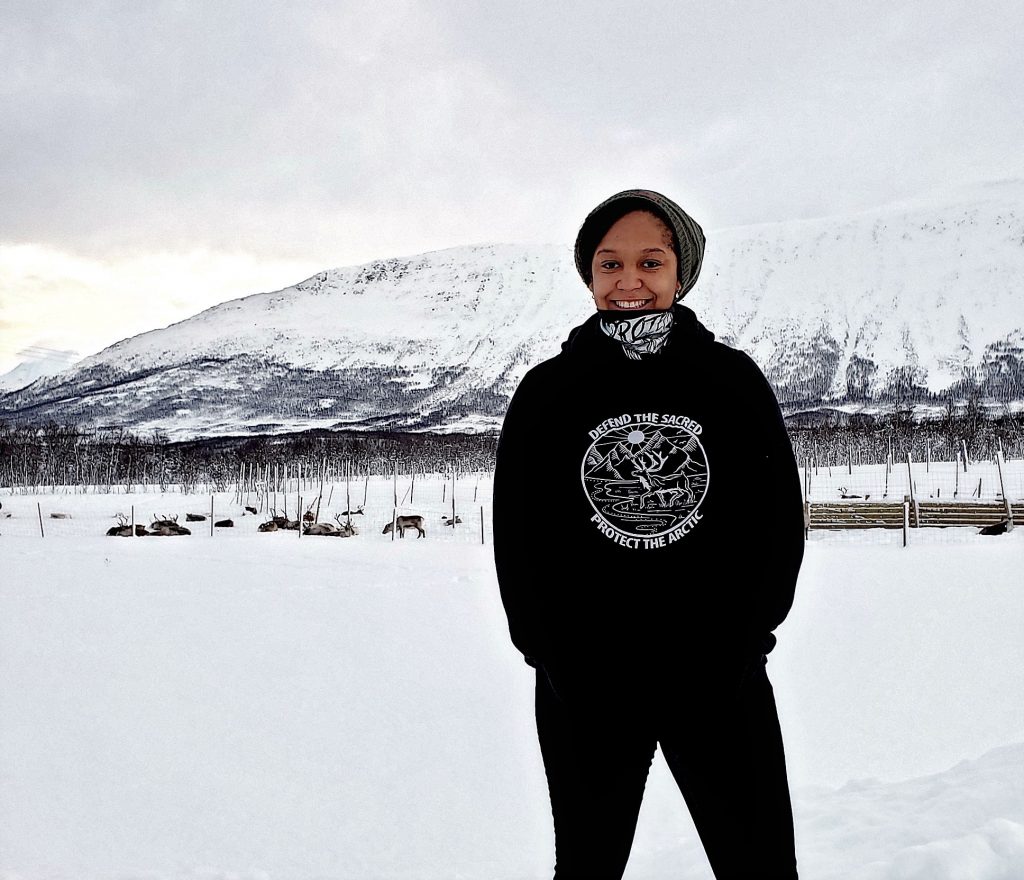
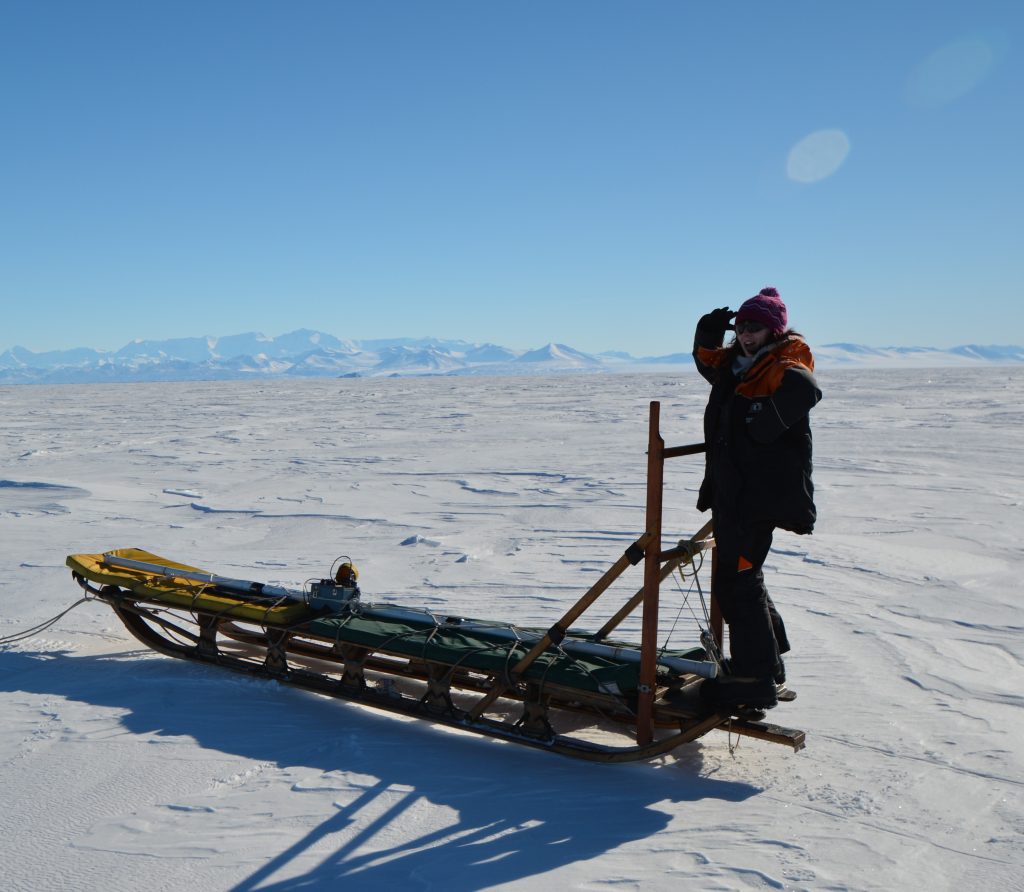
Gemma Brett, PhD
Discipline: Glaciology – sea ice
Nationality: Irish
Organisation: Gateway Antarctica, University of Canterbury (New Zealand)
Regional focus: Antarctica
Social media: ResearchGate
What’s the work that you do?
I use geophysical and satellite techniques to study how sea ice, the ocean, and the Antarctic Ice Sheet interact. This system is critical for global ocean circulation and climate regulation….without which, none of us would exist!
What keeps you going?
My nieces and nephews and the hope that we can and will do better.
What’s your message to the world?
Go outside, get amongst it, and enjoy nature! We are an integral part of our beautiful planet and we are capable of taking better care of it. Every decision we make matters – both big and small.
Yelena Yermakova, PhD
Discipline: Political Philosophy
Age: 36
Nationality: US-American and Russian
Organisation: University of Oslo
Regional focus: Arctic and Antarctic
Social media: ResearchGate and LinkedIn
What’s the work that you do?
My work is in political theory. I am interested in the governance of international spaces such as the Polar regions, which institutions should govern these spaces, and what makes these institutions legitimate and worthy of support. I recently defended my PhD dissertation, “Governing Antarctica: Assessing the Legitimacy and Justice of the Antarctic Treaty System,” which is about decision-making and the authority in the Antarctic regime.
What keeps you going?
Feeling very fortunate to work on the topics that I truly find fascinating: global governance, institutional legitimacy, and global commons. Hoping that perhaps my ideas will contribute to global governance and the principles it should be guided by. The support from and interaction with other polar regions researchers! The amazing community of Antarctic humanities, legal and social sciences researchers.
What’s your message to the world?
Collaboration and sharing the ideas is a key to a successful research, so reach out to other researchers and support others!
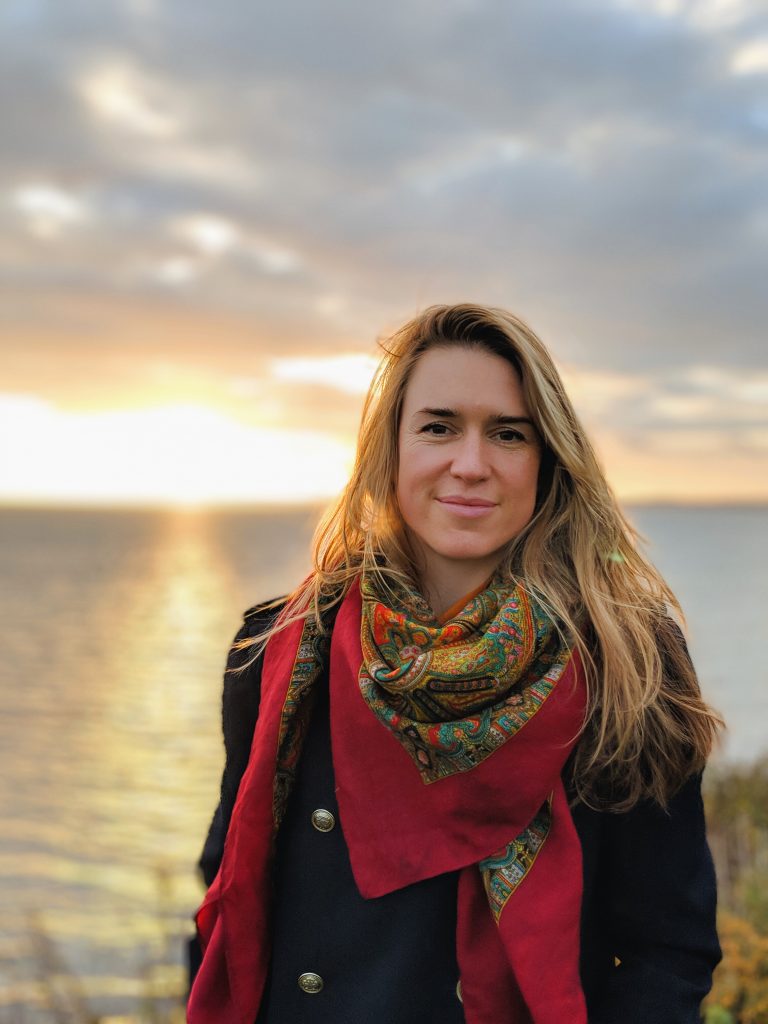

Andrea Herbert, PhD
Discipline: Anthropology & Antarctic Studies
Age: 39
Nationality: German
Organisation: Gateway Antarctica, University of Canterbury (New Zealand); Constantia Consulting
Regional focus: Arctic and Antarctic
What’s the work that you do?
I do a little bit of everything. I’m on the edge of academia, occasionally coordinating teaching projects at university, guiding on polar expedition vessels, or consulting on Antarctic projects for a colleague’s consulting firm.
What keeps you going?
Knowing that it’s a privilege to be involved in polar endeavours. I get a kick out of both physical in-person activities in icy environments and the more removed desk-based approach, e.g., about how best to manage our engagement with the Polar Regions.
What’s your message to the world?
Women are invaluable in polar work!
